Affiliate links on Android Authority may earn us a commission. Learn more.

Meizu Pro 7 Plus
What we like
What we don't like
Our scores
Meizu Pro 7 Plus
When we reviewed the Meizu Pro 6 Plus earlier this year, we were very impressed by its excellent hardware. We made sure to note just how much Meizu’s Flyme 6 software helped the phone stand out amongst a sea of mid-range smartphones.
Four months later (our Pro 6 Plus review was admittedly a little late…) and we are ready to share our thoughts on Meizu’s most striking phone yet, the Meizu Pro 7 Plus. The Pro 7 Plus promises a signature Meizu experience with an added bonus: a secondary rear-facing display.
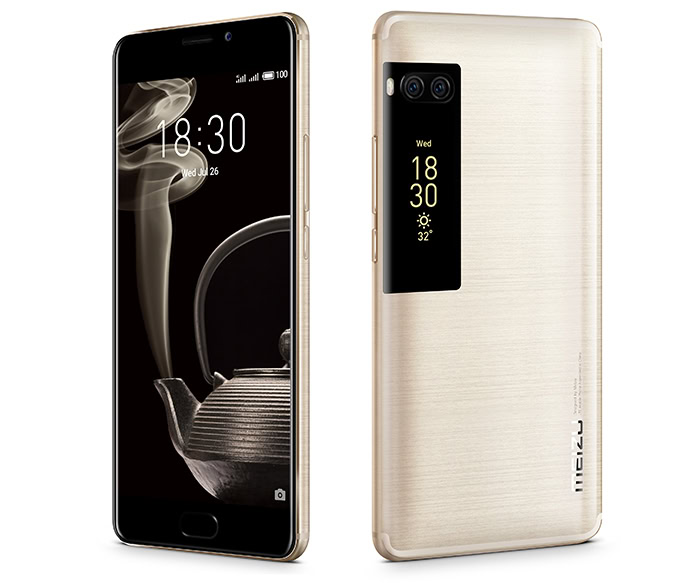
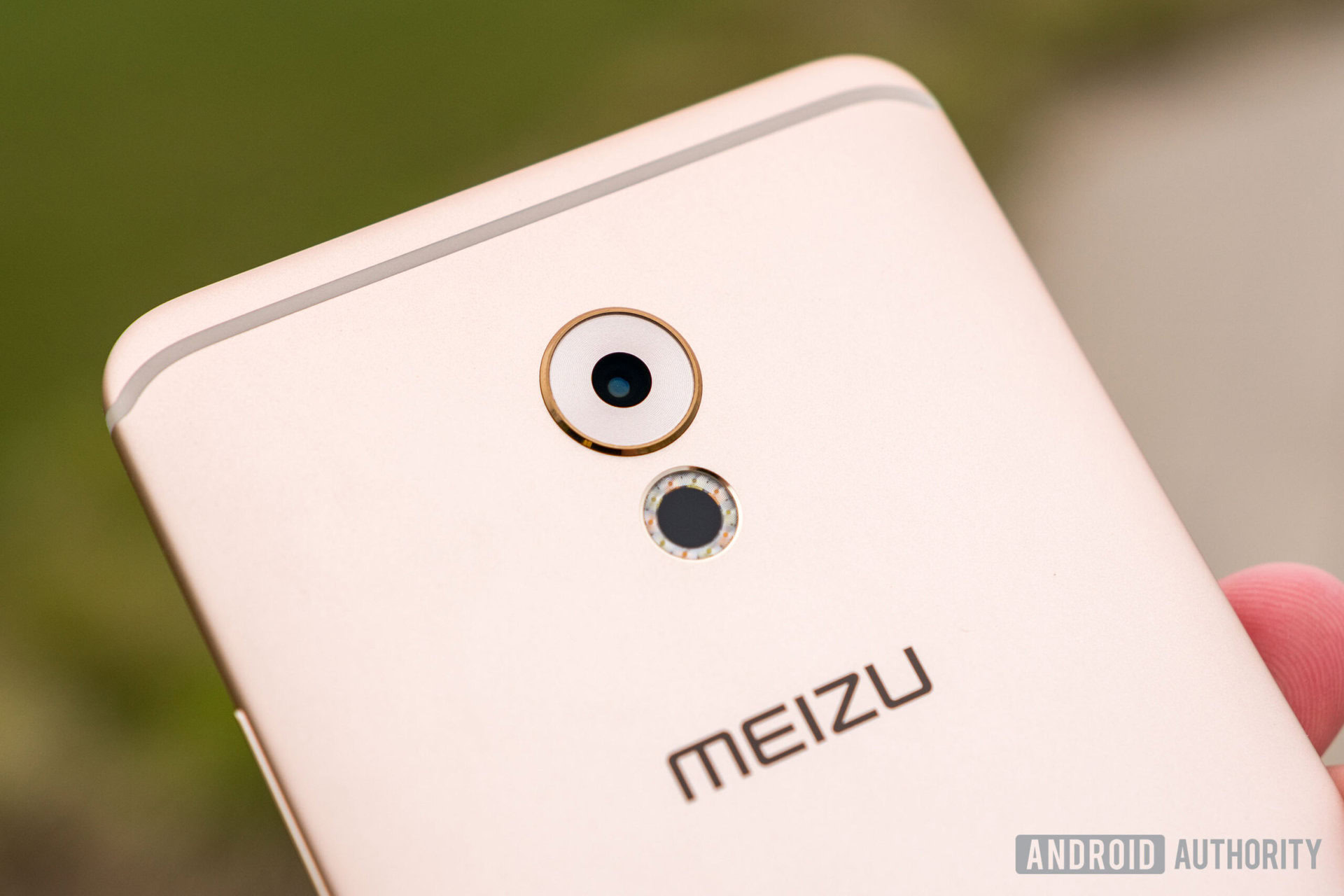
You may be asking yourself “but why?” Perhaps you’re curious about the display’s implementation and features. Or you might be wondering if the Pro 7 Plus is a good buy, regardless of the secondary display. Let’s answer all of those questions and more with our comprehensive Meizu Pro 7 Plus review!
Design
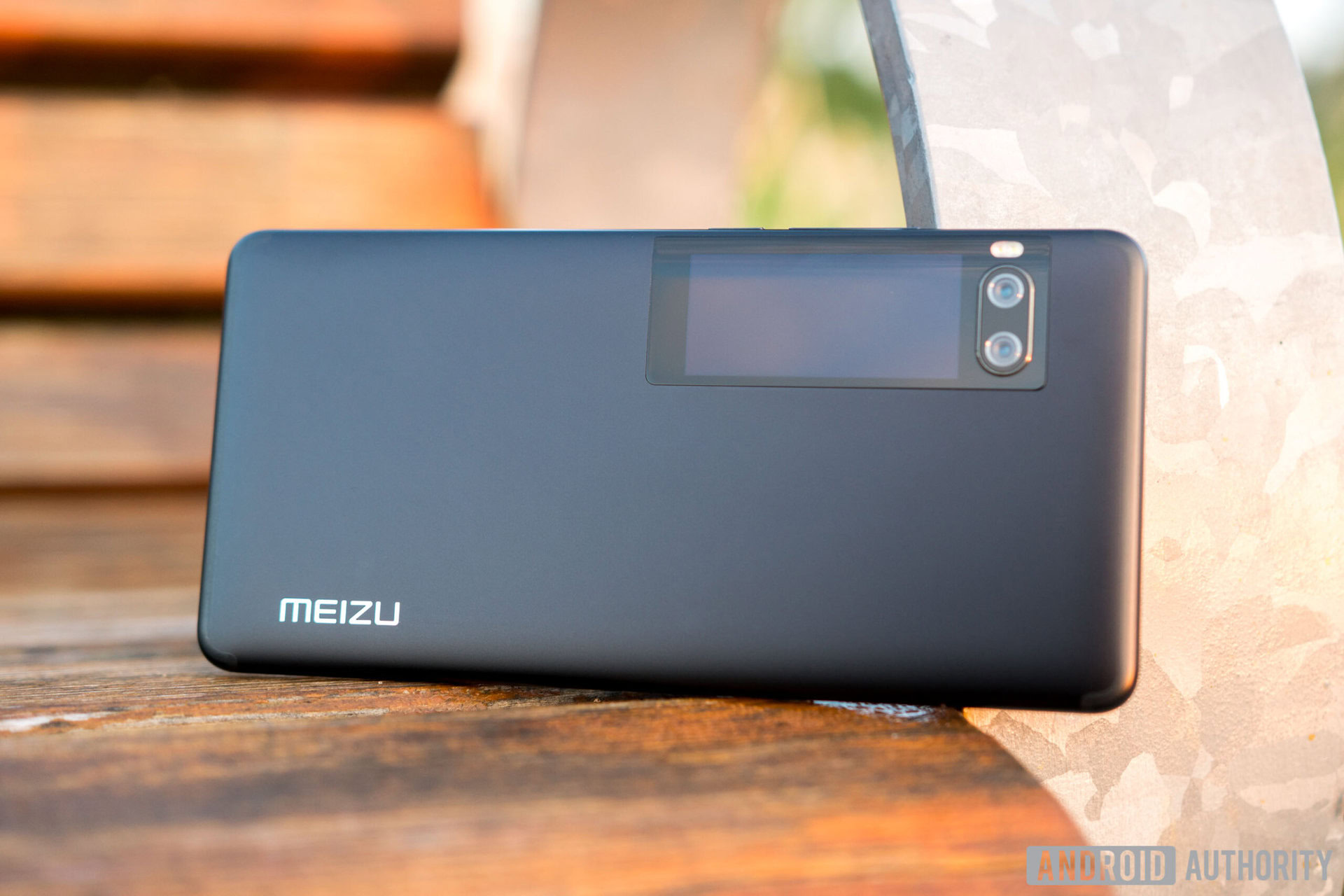
If we ignore the addition of a secondary display for just a second, the Pro 7 Plus design is quite similar to that of the Pro 6 Plus. That shouldn’t be taken as a drawback though. We really liked the Pro 6 Plus’ design and are happy to see a familiar design here.
The first thing you'll notice is how well built it feels
The first thing you’ll notice when picking up the Pro 7 Plus is how well built it feels. That may sound a tad cliché, but the Pro 7 Plus truly shines in this regard. The choice of materials especially helps the phone feel premium.
The aluminum unibody isn’t just strong and sleek. It actually feels softer than you would expect too, which makes the Pro 7 Plus more comfortable in the hand.
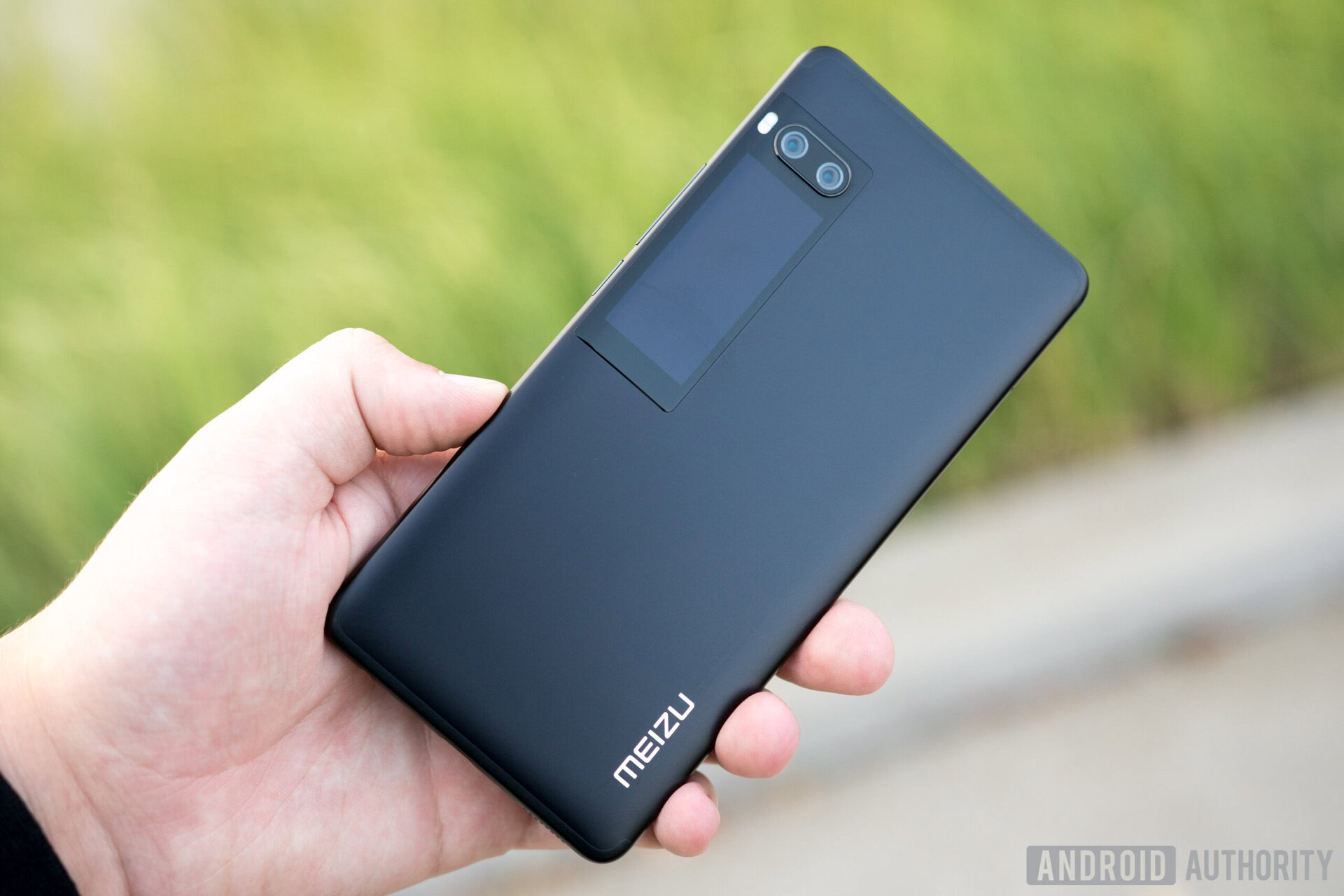
Unfortunately, this softer aluminum also means that the Pro 7 Plus is quite slippery. The flat edges do help make the phone easier to grip, but you may still want to consider a case. Thankfully, Meizu includes a free plastic case in the box.
Returning to the design, the Pro 7 Plus is available in a number of attractive color options: matte black, space black, silver, and gold. There is also a smaller Pro 7 model that is available in a bright red. As you likely suspected, we are reviewing the matte black model. The other Pro 7 Plus color options feature brushed aluminum instead if you prefer a more showy look.
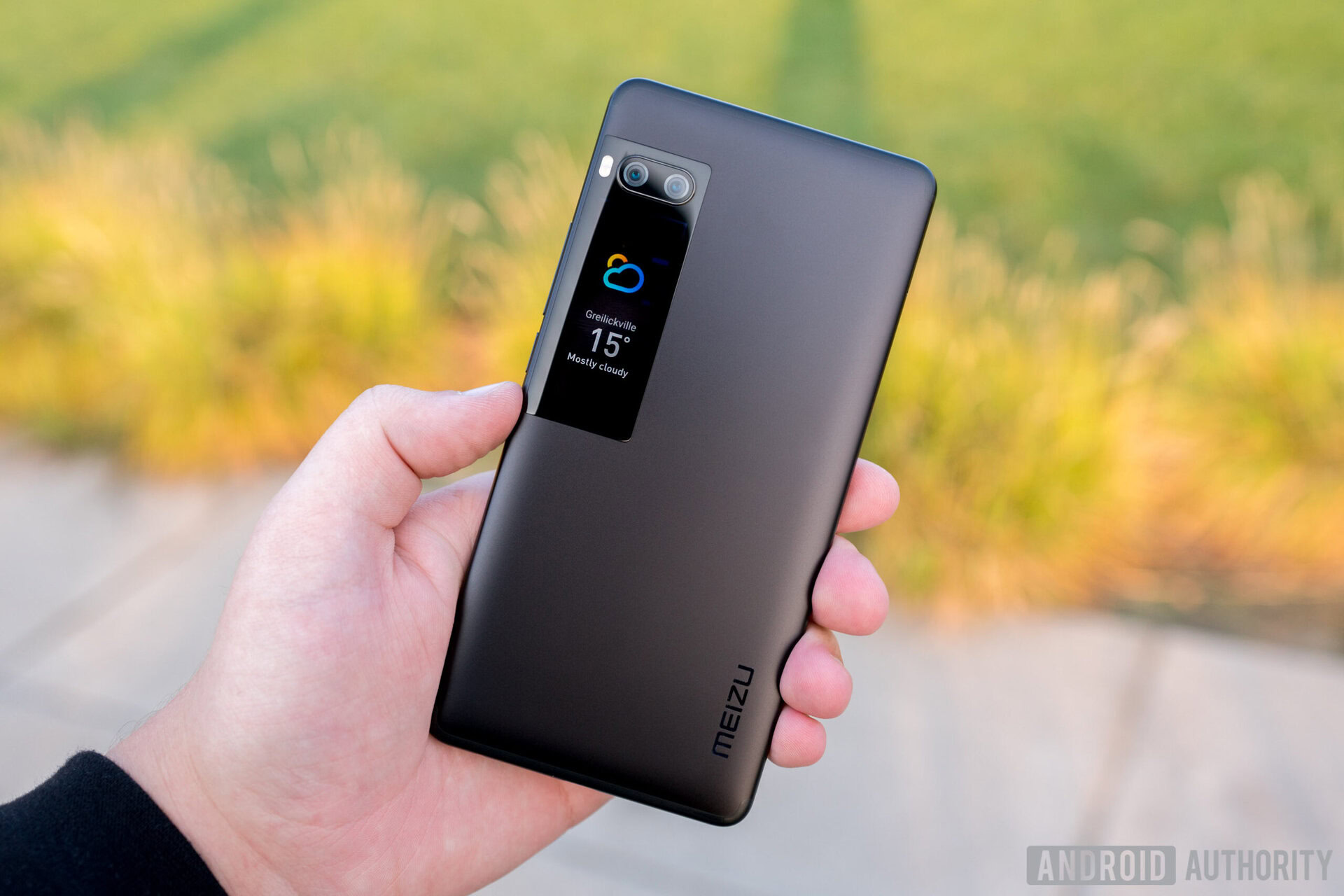
The matte black unit is definitely more minimal looking though. The curved antenna lines at the top and bottom of the phone are barely noticeable. Aspects like the flush, curved, and cornered secondary display glass along with the carefully chamfered edges help the phone feel like a single piece of hardware.
We would have liked to see more understated Meizu branding on the bottom right instead of the silver, tactile branding as it slightly detracts from the phone’s minimal look. With that said, we can appreciate the uniqueness of this approach this time around.
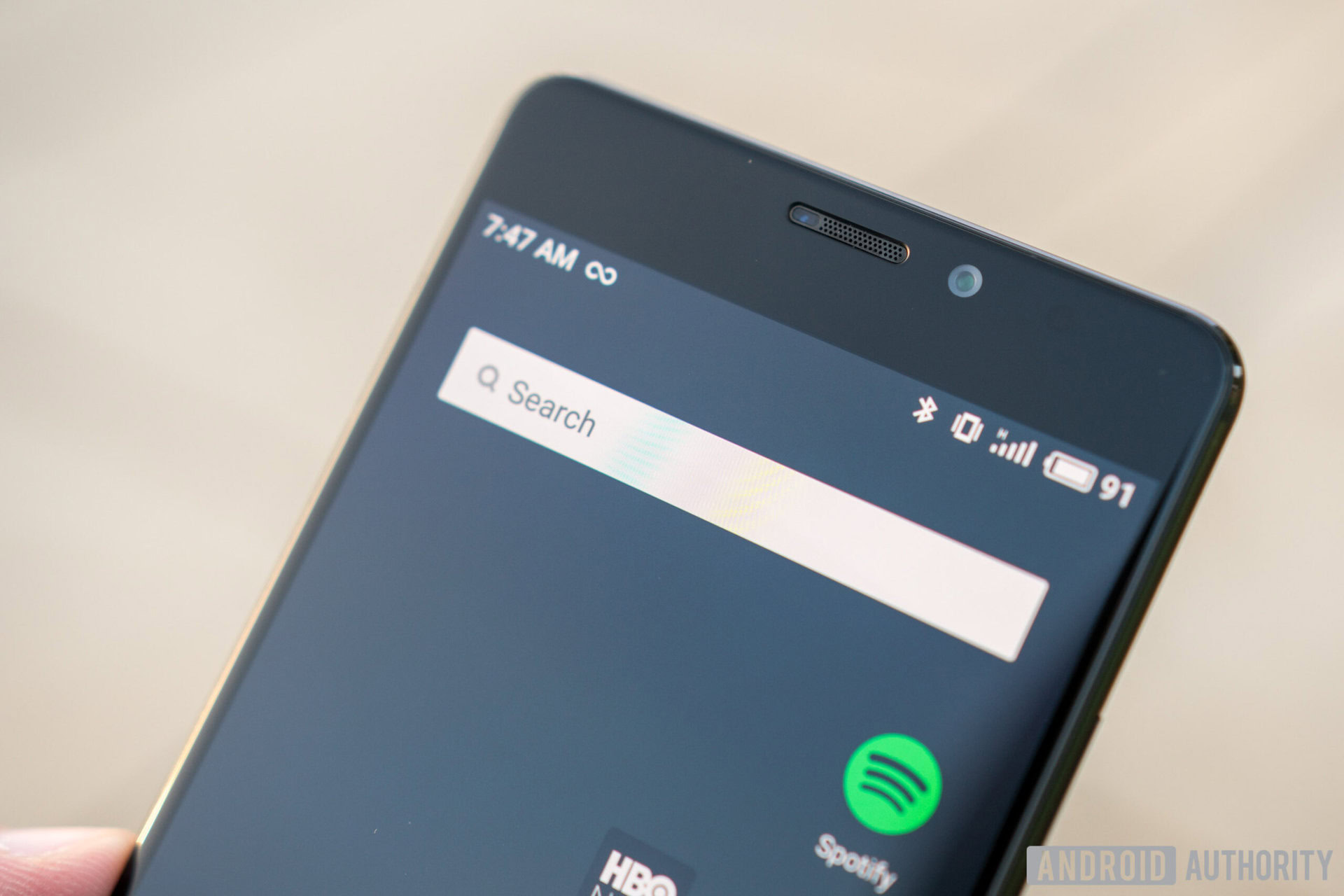
Smaller details like the integrated light and proximity sensors in the earpiece and symmetrical top and bottom bezels add some serious polish to the overall design. It was details like these that made us repeatedly admire our unit’s premium build during our time with it.
The Pro 7 Plus does not include any water or dust protection
Unlike many true flagship smartphones, the Pro 7 Plus does not include any water or dust protection. This is not very surprising given the cost of implementing such protection, but it’s something to keep in mind if you are also considering more expensive options.
One of the more controversial aspects of Meizu’s smartphones is their single-key navigation configuration. With the Pro 7 Plus and mTouch, you go home by physically pressing down on the button and go back by tapping the button. For multitasking, you just swipe up from either the left or right side of the bottom bezel.
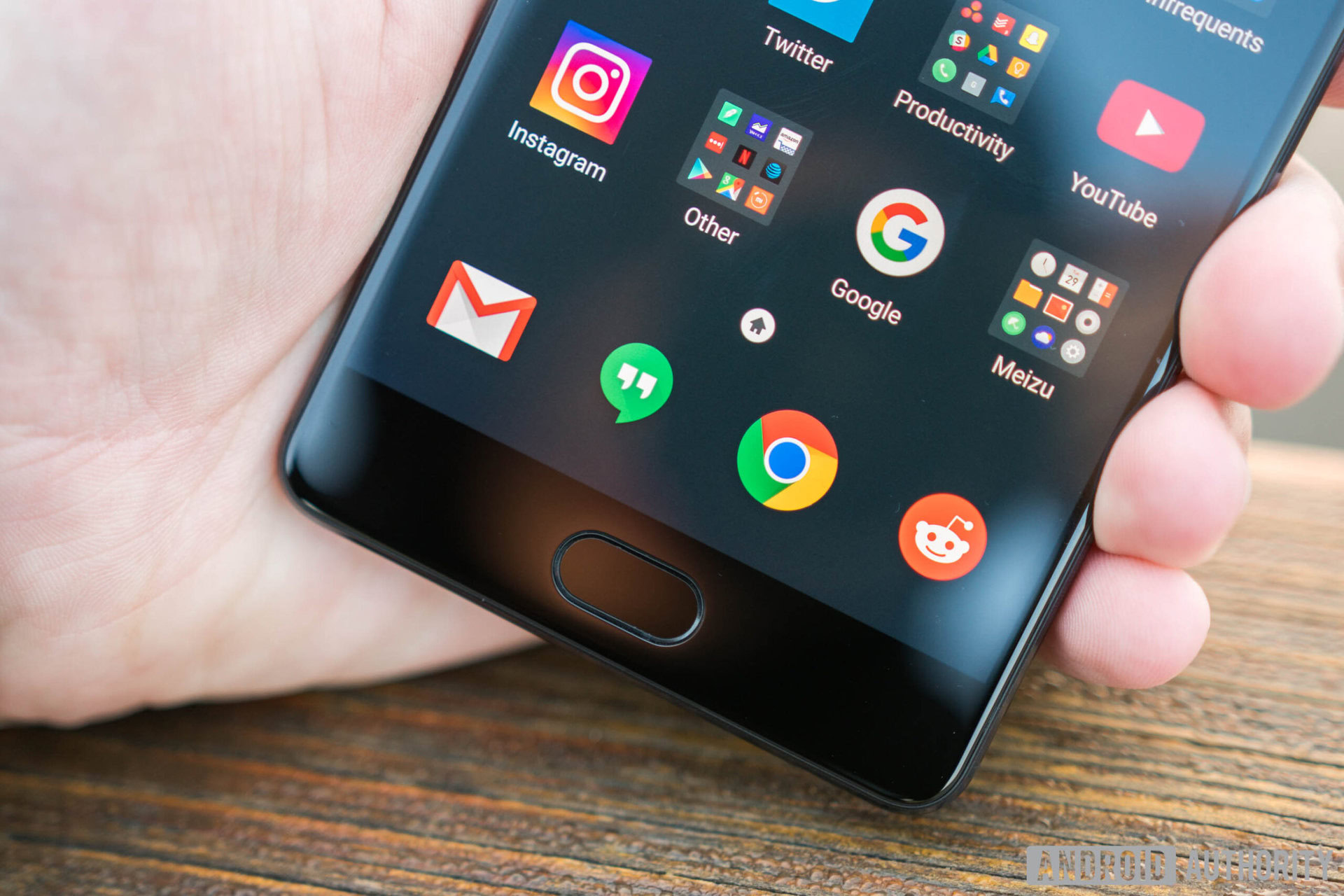
Almost everyone is accustomed to a three-key layout, where every function is visually represented. Perhaps the fear of change is why some people dislike the idea of a single button, but other OEMs have also offered it. While it can take a day or two to get used to, you may well end up loving this setup for its clever simplicity.
Navigation isn’t all the Pro 7 Plus’ single key can do though — it’s also a fingerprint reader. Although it’s not as quick as the quickest out there, it is still very much comparable to options like the Samsung Galaxy S8 and LG G6.
Since the Pro 7 Plus is running the same Flyme 6 software as its predecessor, it also includes the same extra fingerprint reader features. App lock, for example, allows you to add an extra layer of fingerprint security on a per-app basis.
There are also some powerful per-finger features. For example, you can select certain contacts, apps, and files to only be available in privacy mode. You could then make it so that one finger gives you access to those items while your other fingers do not.
Primary Display
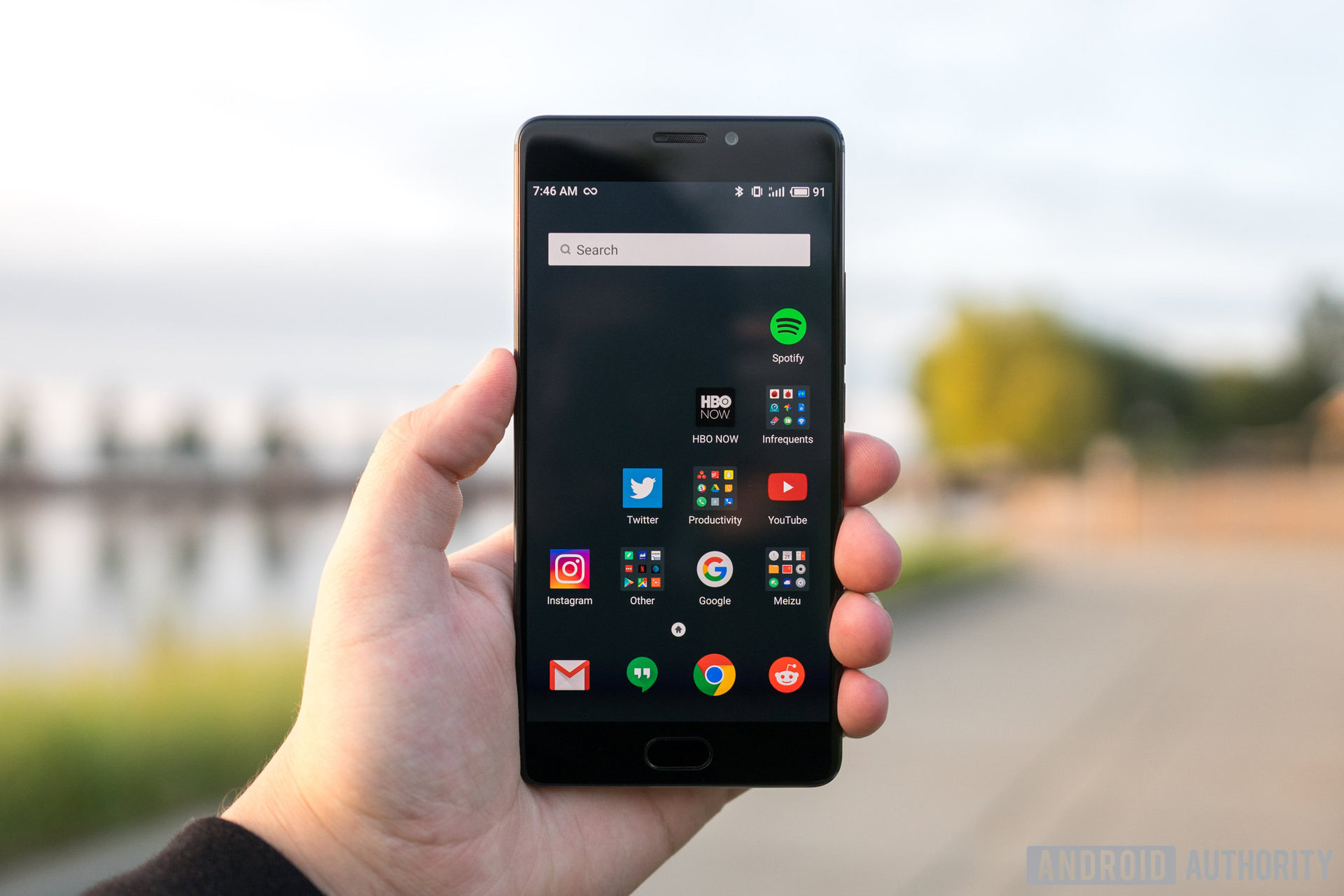
Similar to its predecessor, the Pro 7 Plus is sporting a 5.7-inch Quad HD Super AMOLED display. We already declared the Pro 6 Plus’ display to be one of the best in this price category and the Pro 7 Plus’ display is even better.
The Meizu Pro 7 Plus has an all around excellent display
Color reproduction is excellent, the display is well saturated for punchy colors, and sunlight readability is fairly good. It’s an all around excellent display.
We also really like the size. While 5.5-inches is a great middle ground, it’s nice that Meizu is giving customers the choice between a smaller 5.2-inch display with the Pro 7 and a larger 5.7-inch screen on the Pro 7 Plus. If you watch a lot of videos and frequently browse the mobile web, this size is perfect.
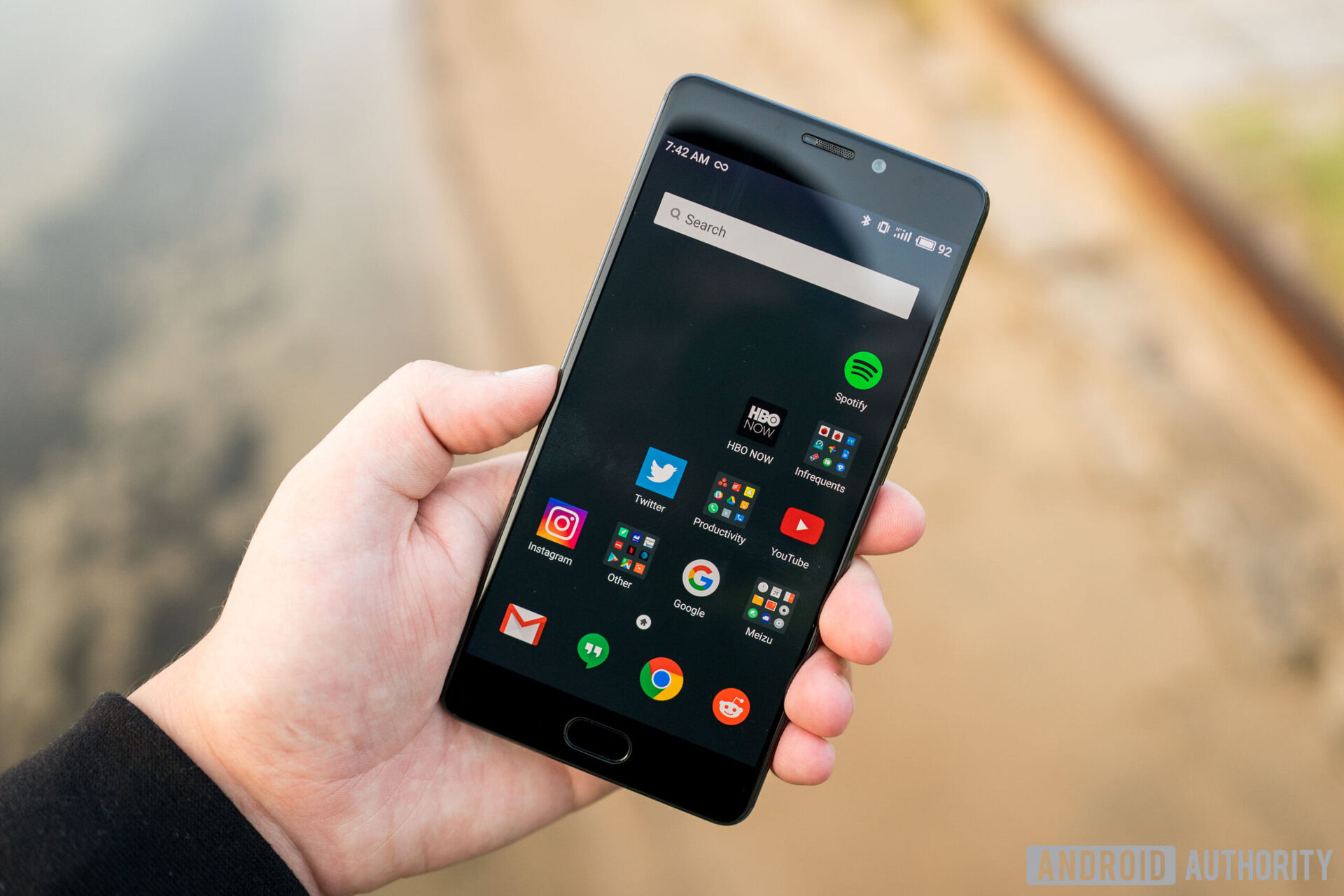
Meizu has dropped their 3D Press technology with this iteration of the Pro line, which is understandable since it was never a very useful feature. If this is something you really want, the Pro 6 Plus is still available.
There’s also no Always On Display (AOD) feature this time around. That’s because there’s a new way to check the time: with the secondary display.
Secondary Display
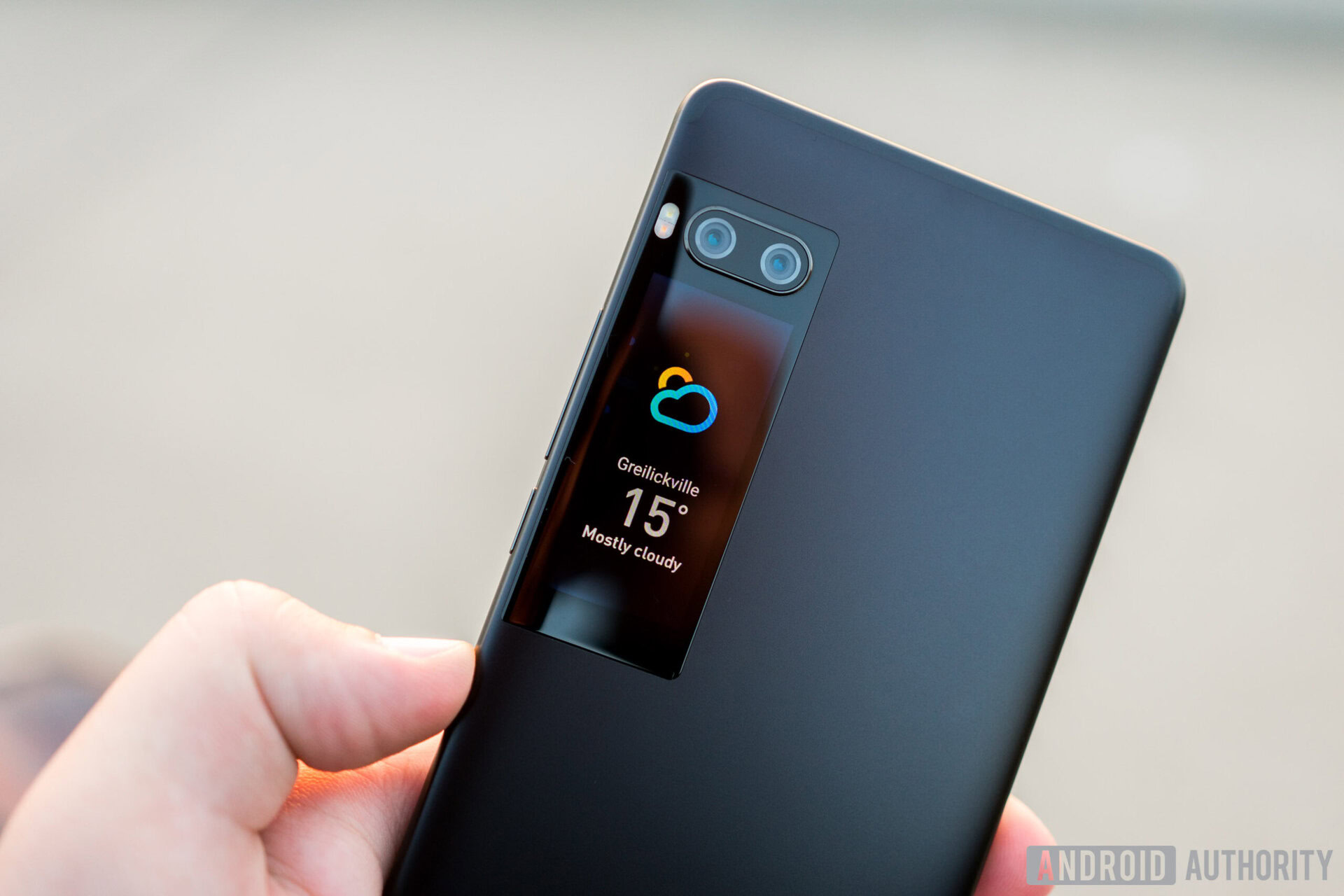
The Meizu Pro 7 Plus’ secondary display is unmistakably its standout feature. It may even be the sole reason that you’re checking out this review. Its uniqueness makes it a very enticing feature.
The Meizu Pro 7 Plus has a secondary 1.9-inch 240 × 536 AMOLED panel on the back
The secondary display is positioned on the top left area on the back of the Pro 7 Plus. The display itself covers a good portion of the glass below the camera configuration. In case you’re wondering, it’s a 1.9-inch 240 × 536 AMOLED panel. That’s a high enough resolution for what the display is.
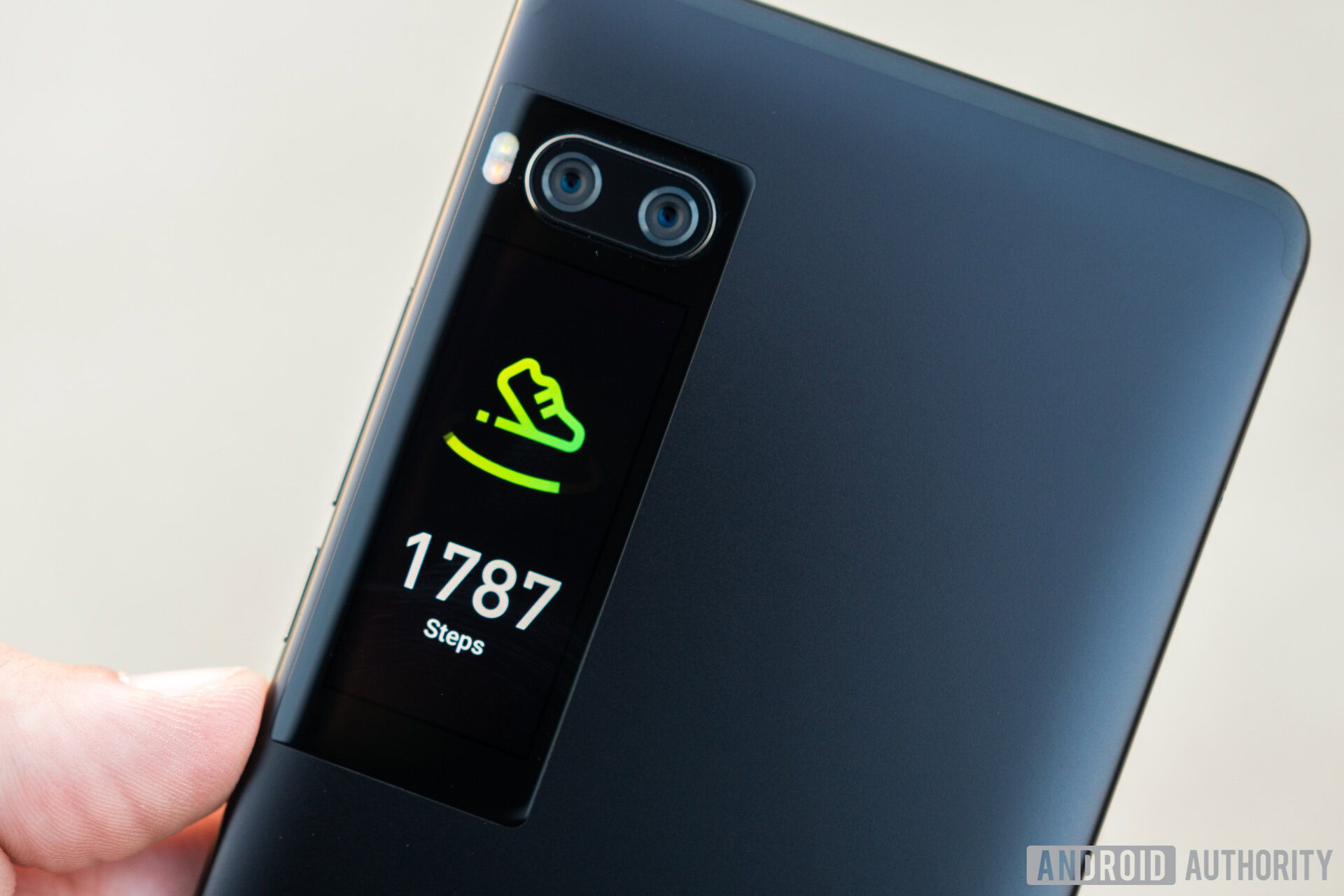
So, what does it do? Well, there are three main information panels that you can swipe between: time, pedometer, and weather. These three panels provide some on-demand, basic information. The pedometer and weather panels have colorful animated icons, which is a nice touch.
The pedometer is independent of any app and appears to be very accurate when walking with the phone in your hand, but too liberal when walking with the phone in your pocket. The weather corresponds to what is shown in the system Weather app, which gets its data from Accuweather.
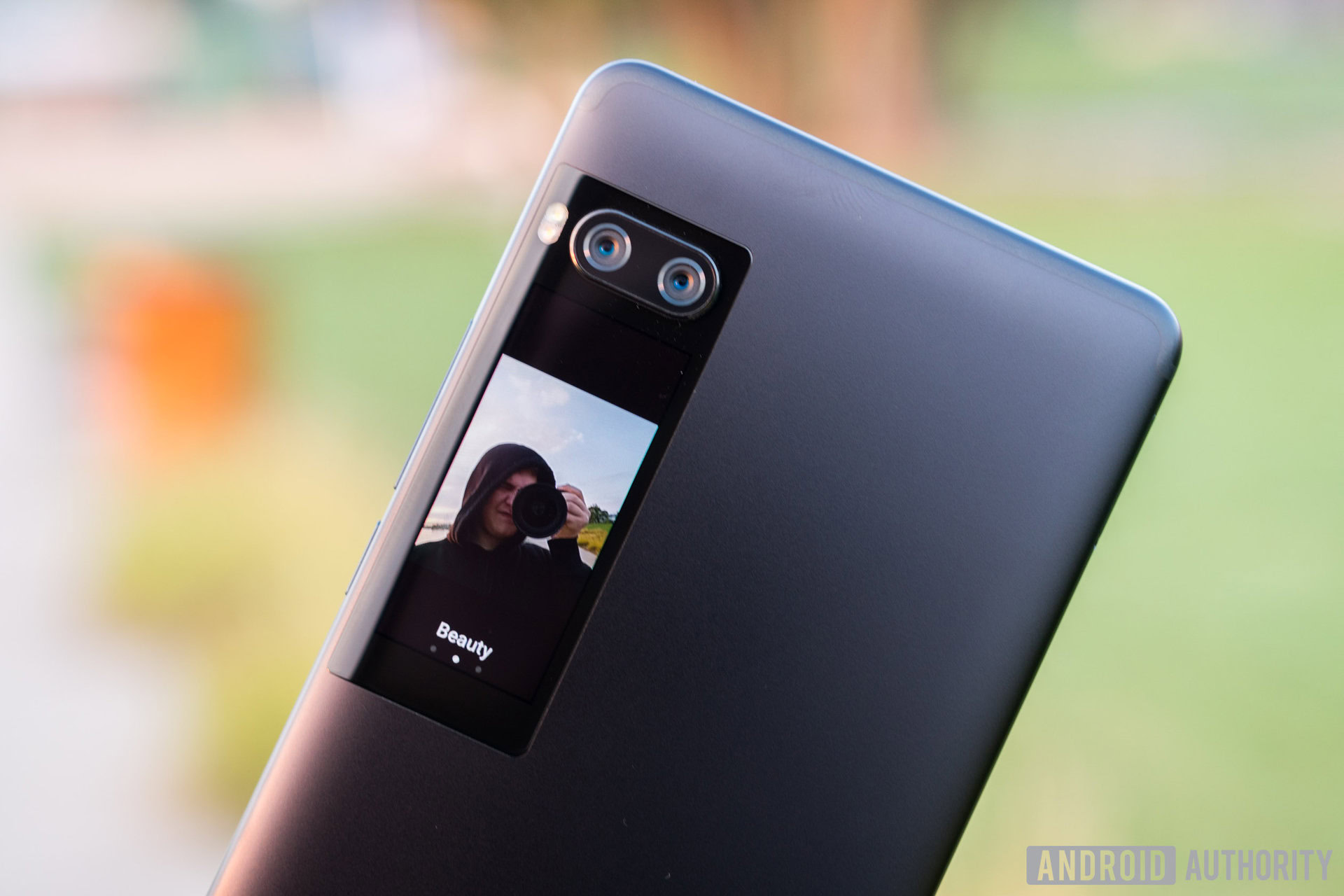
Here you can take photos...using the rear cameras!
If you swipe up or down on any of the information panels, you get to the viewfinder mode. Here you can take photos…using the rear cameras! This allows you to capture considerably higher quality selfies than if you were to use the front-facing camera (comparison under Camera).
There’s also no fussing around with unlocking the phone and getting to the camera app, which makes it easy to get a quick photo.
In addition to these on-demand core features, the secondary display also shows “new notification” for all notifications, music controls for the system Music app, event times and titles prior to an event, alarms, and the battery percentage when charging.
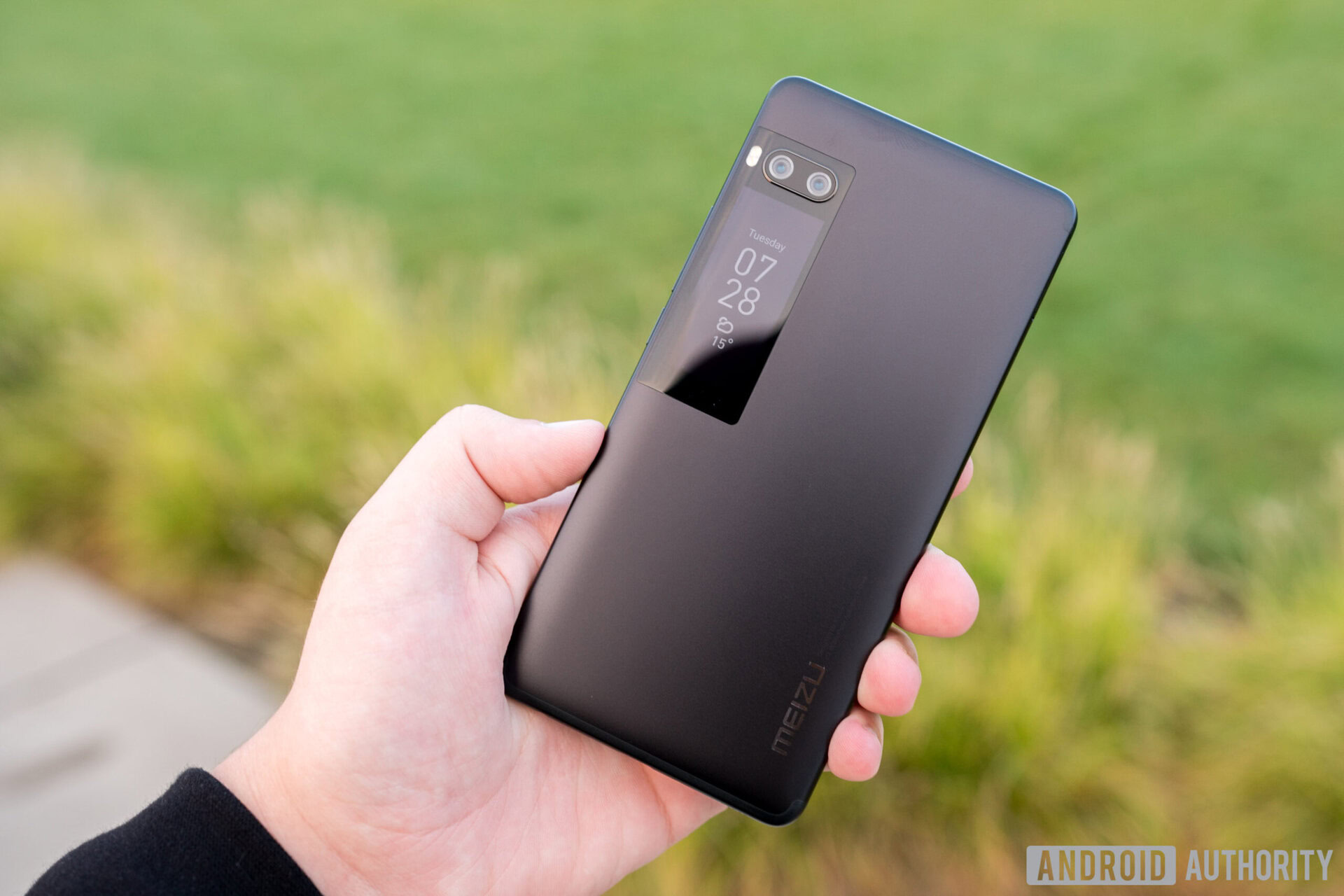
There seems to be some confusion surrounding how you activate the secondary display. To clarify, it is not an always on display. Instead, it activates when it thinks you turn the phone from front to back. If you have the Pro 7 Plus facing screen down on a table, picking up the phone is not enough to activate the secondary display. You have to turn the phone to the front first and then turn it around to the back.
Thankfully, there is an optional double tap to wake feature which lets you activate the secondary screen manually by just double tapping on it.
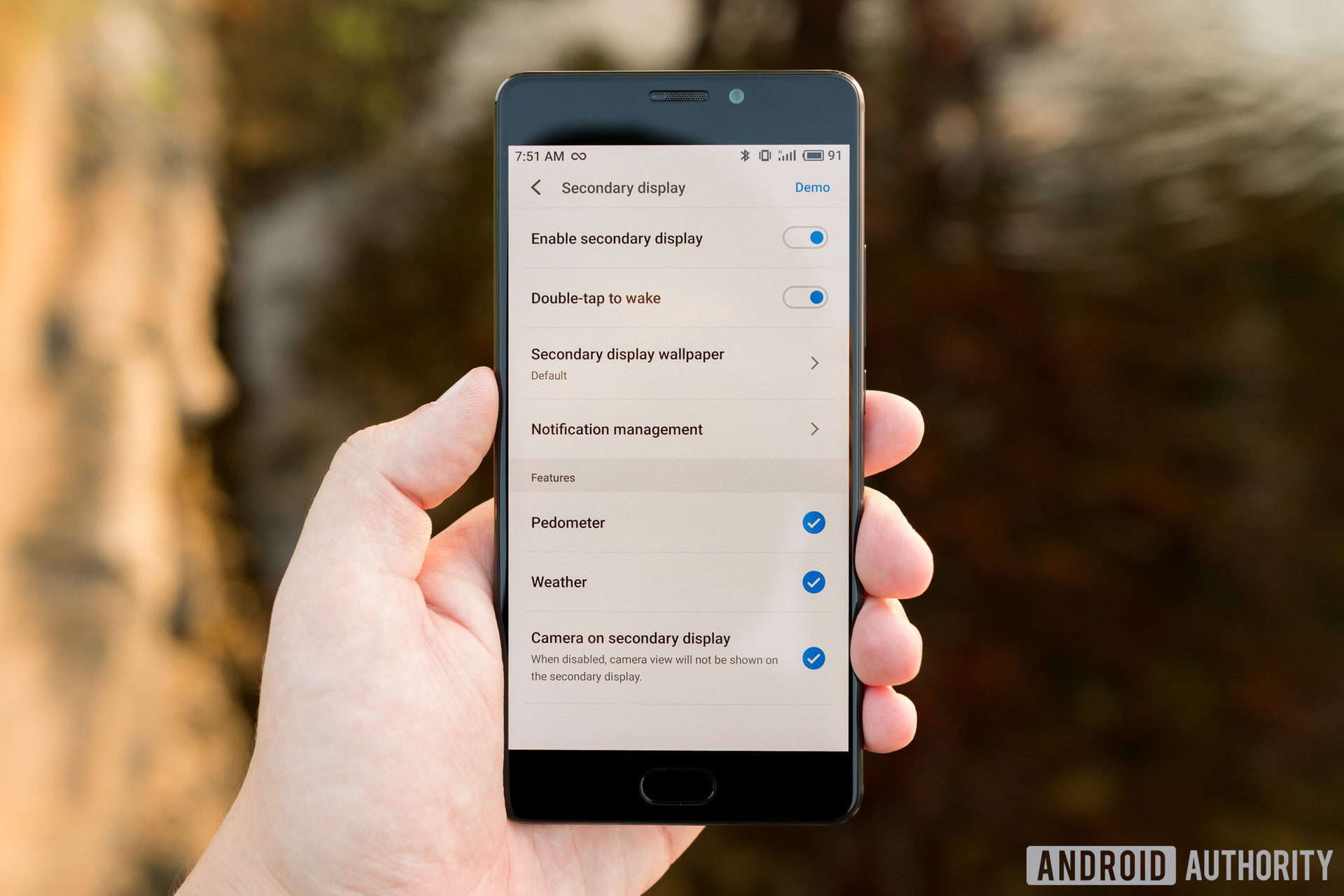
The secondary display only shows the time in a 24-hour format and the temperature in Celsius, even if you have 12-hour and Fahrenheit formats selected in the phone settings. We can forgive this since the phone is not intended for sale in the United States, one of the only countries still using 12-hour and Fahrenheit formats.
It's one of the coolest smartphone features that we've seen this year
Overall: we are very pleased with the innovation by Meizu that brought us the secondary display. It’s one of the coolest smartphone features that we’ve seen this year, which is saying a lot. We are sure you can share our appreciation of Meizu’s successful attempt to differentiate.
With that said, we do feel that the secondary display could be improved. The hardware implementation is great, but the software could use some work. That’s absolutely fine given that this is the first try; I mean, can you imagine using Android 1.0 today?
Related: Smartphones features on the way out
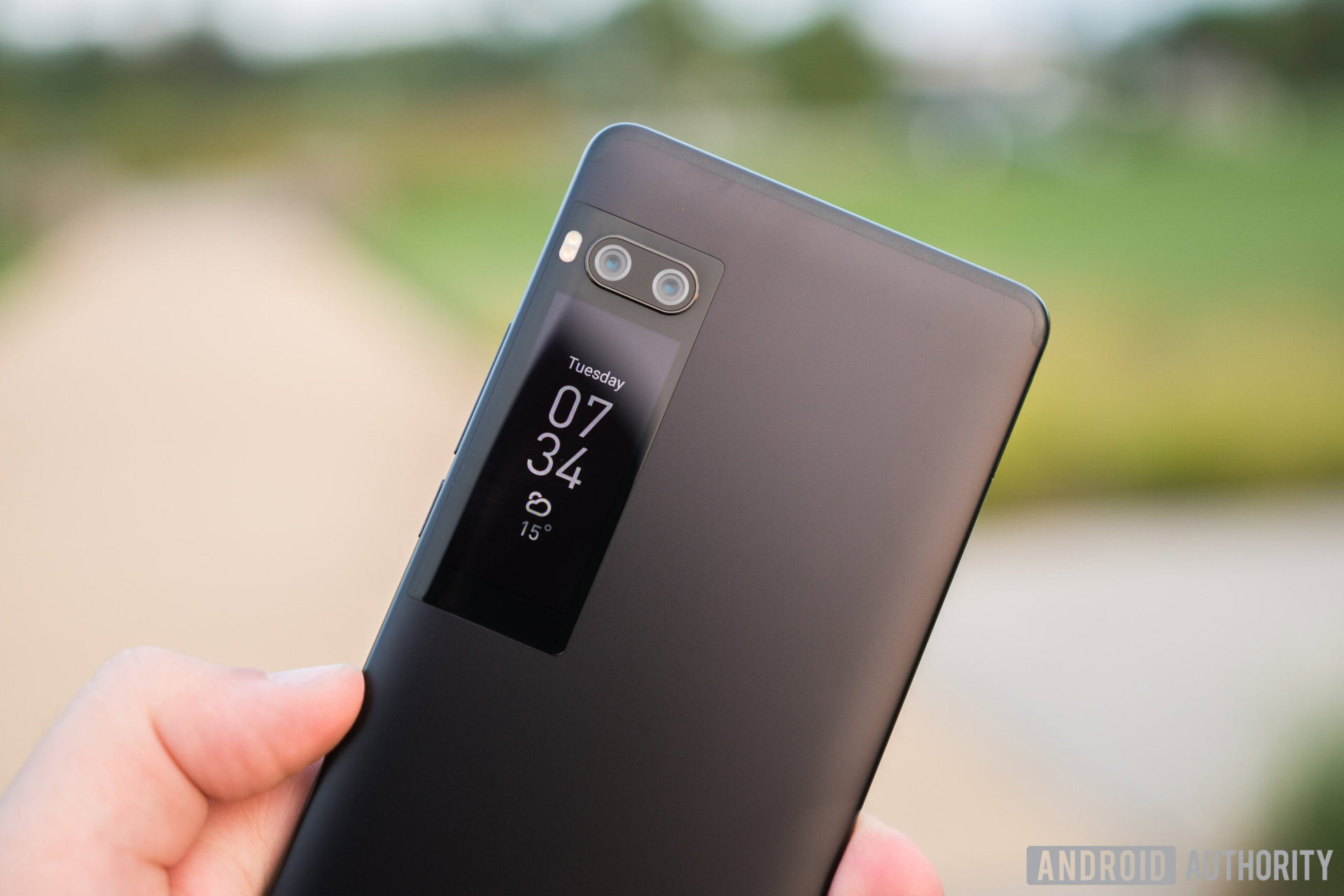
On the top of our wish list are improvements to current features. We wish we could see actual notifications (or at least which app is sending them), be able to control third party music apps, and record video using the camera viewfinder. We believe that the secondary screen could use some new features too. We would like to be able to view our daily agenda, put the phone in and out of silent mode, and set timers and alarms.
Some good news: all of our wishes and likely most of yours can be fulfilled with future software updates instead of hardware changes. This is very promising, especially considering Meizu’s historical commitment to system updates.
At the moment, the secondary screen does not add much functional value
At the moment, however, the secondary screen does not add much functional value. It looks very cool, no doubt, but it’s not going to change how you use your smartphone a whole lot. As long as you manage your expectations, you’ll still enjoy this unique feature and all of the conversations that it helps start.
Performance
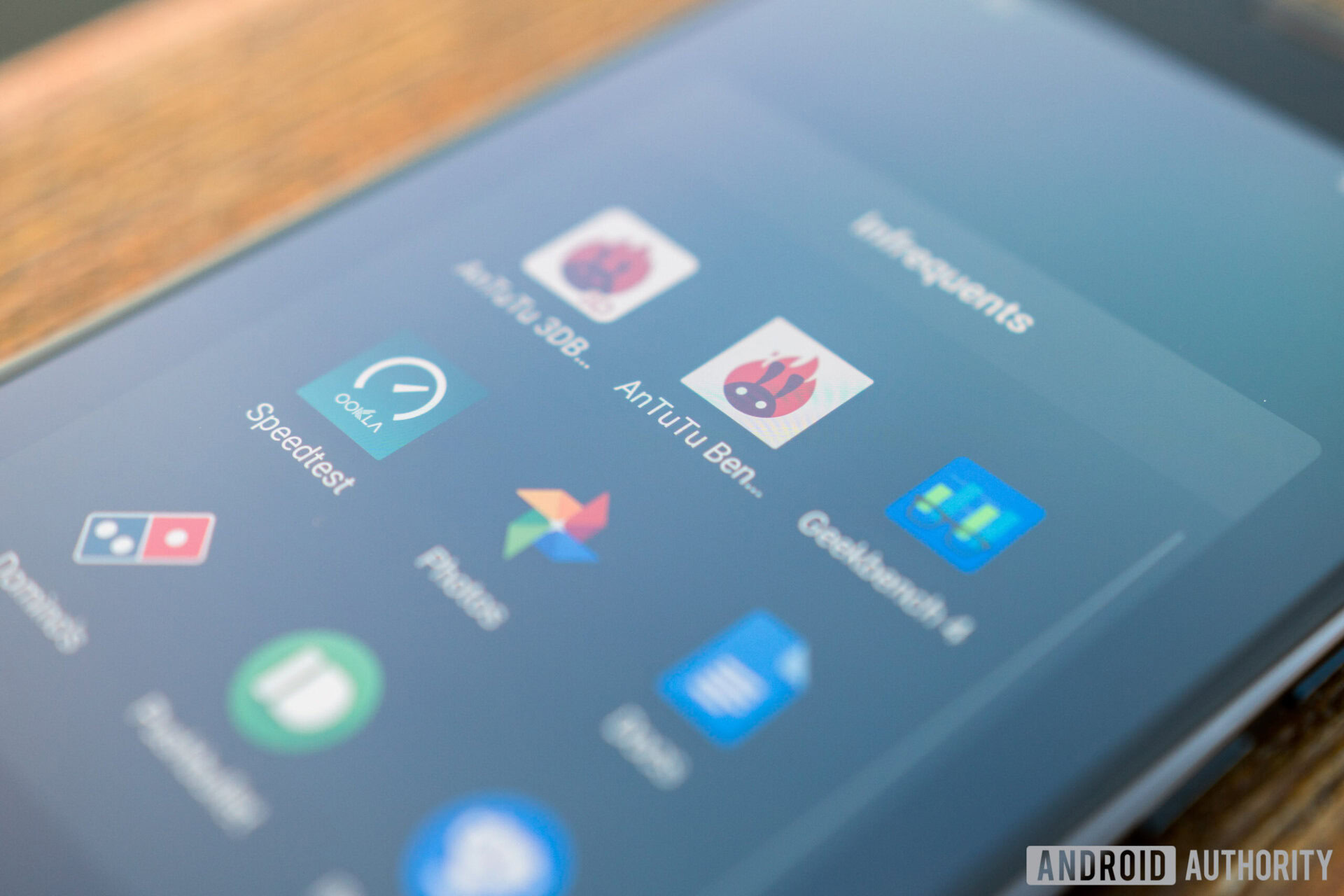
Meizu has chosen the 10nm deca-core MediaTek Helio X30 processor for the Pro 7 Plus. The Pro 7 Plus is actually the only popular smartphone to use the Helio X30, MediaTek’s high-end processor for 2017.
If you were to consider only benchmark test results, you would think the Pro 7 Plus would perform below average. Perhaps this is why our unit’s software blocks outgoing connections for benchmark apps to test and verify their results. Although we cannot confirm yet, it appears that there are some shenanigans going on here. Therefore, we cannot endorse the accuracy of these benchmark results.
In our experience, however, day-to-day performance on the Meizu Pro 7 Plus was excellent, although only marginally better than the Pro 6 Plus. There are a few big things that help pick up the processor’s slack though: 6 GB of RAM, fast UFS 2.1 storage, and well-optimized software.
Meizu’s One Mind AI optimizations combined with numerous nifty animations especially help smooth out the performance. When compared side-by-side to the Galaxy S8, the Pro 7 Plus often loaded apps and menus just a tad quicker.
Hardware
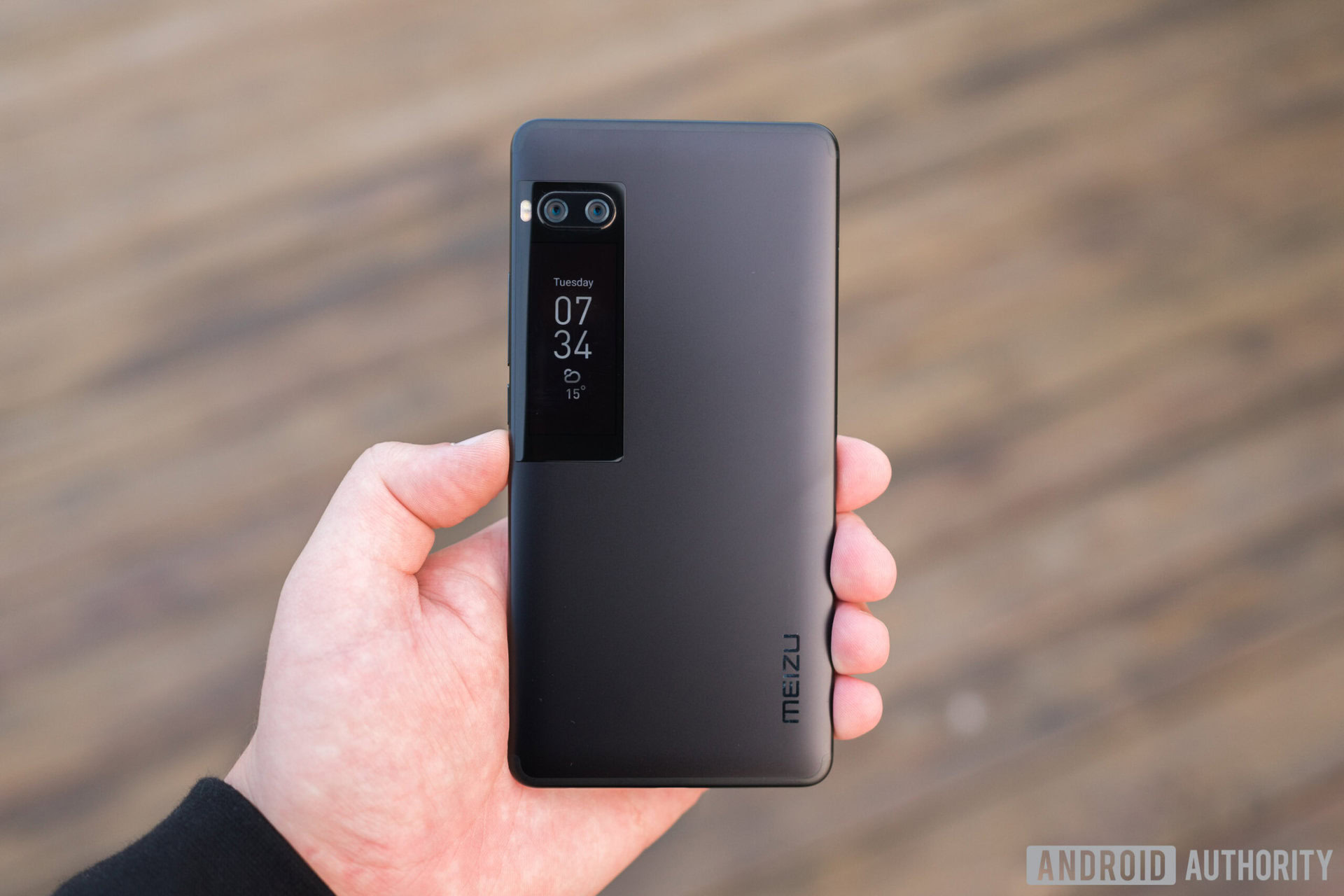
You can use up to two different nano SIM cards with the Meizu Pro 7 Plus. Since it is sold as an unlocked smartphone, you won’t have to worry about being restricted to any single carrier either.
For a United States audience, please note that this phone is incompatible with US 4G LTE networks. When using the Pro 7 Plus with AT&T, you may get LTE in rural areas thanks to legacy Band 5 coverage, but you can really only expect 3G. With T-Mobile, you can expect 3G in only a few areas.
The Meizu Pro 7 Plus is incompatible with US 4G LTE networks
While the Pro 7 Plus is not intended for sale in the US, we want to make sure that those who might import the device understand this limitation exists.
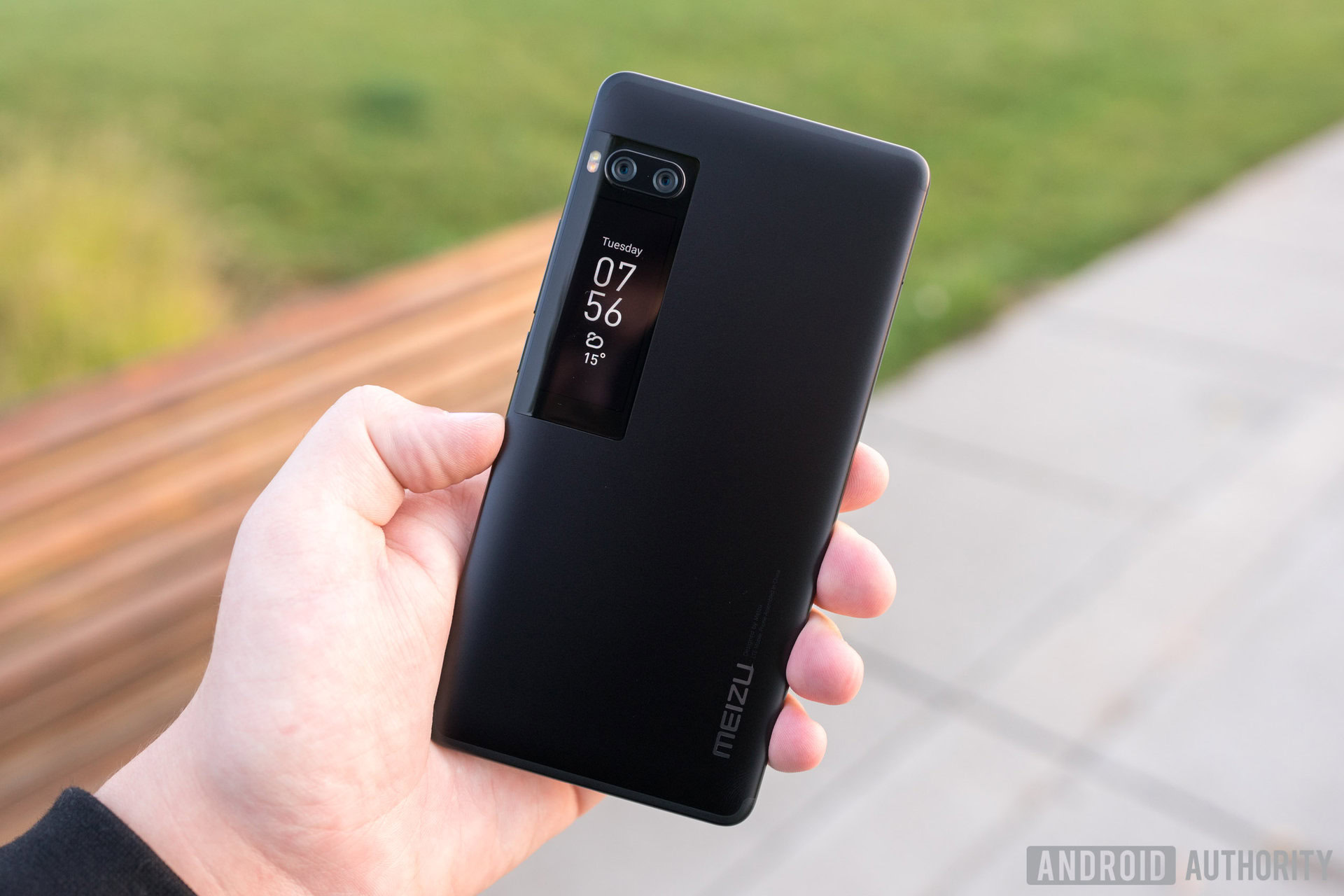
Similar to its predecessor, there is no expandable storage option with the Pro 7 Plus. This choice was likely made to avoid mixing slow microSD card storage with the phone’s fast UFS 2.1 internal storage. The base model’s 64 GB of storage should be plenty of storage for most users and, if you think you might need more, there is also a 128 GB model available.
Meizu has removed NFC with the Pro 7 Plus
Strangely, Meizu has removed NFC with the Pro 7 Plus. Perhaps there wasn’t enough internal space with the secondary display to implement an NFC antenna, or perhaps Meizu has data on its lack of usage. Regardless of the reasoning, some users may really miss this connectivity and contactless payment option.
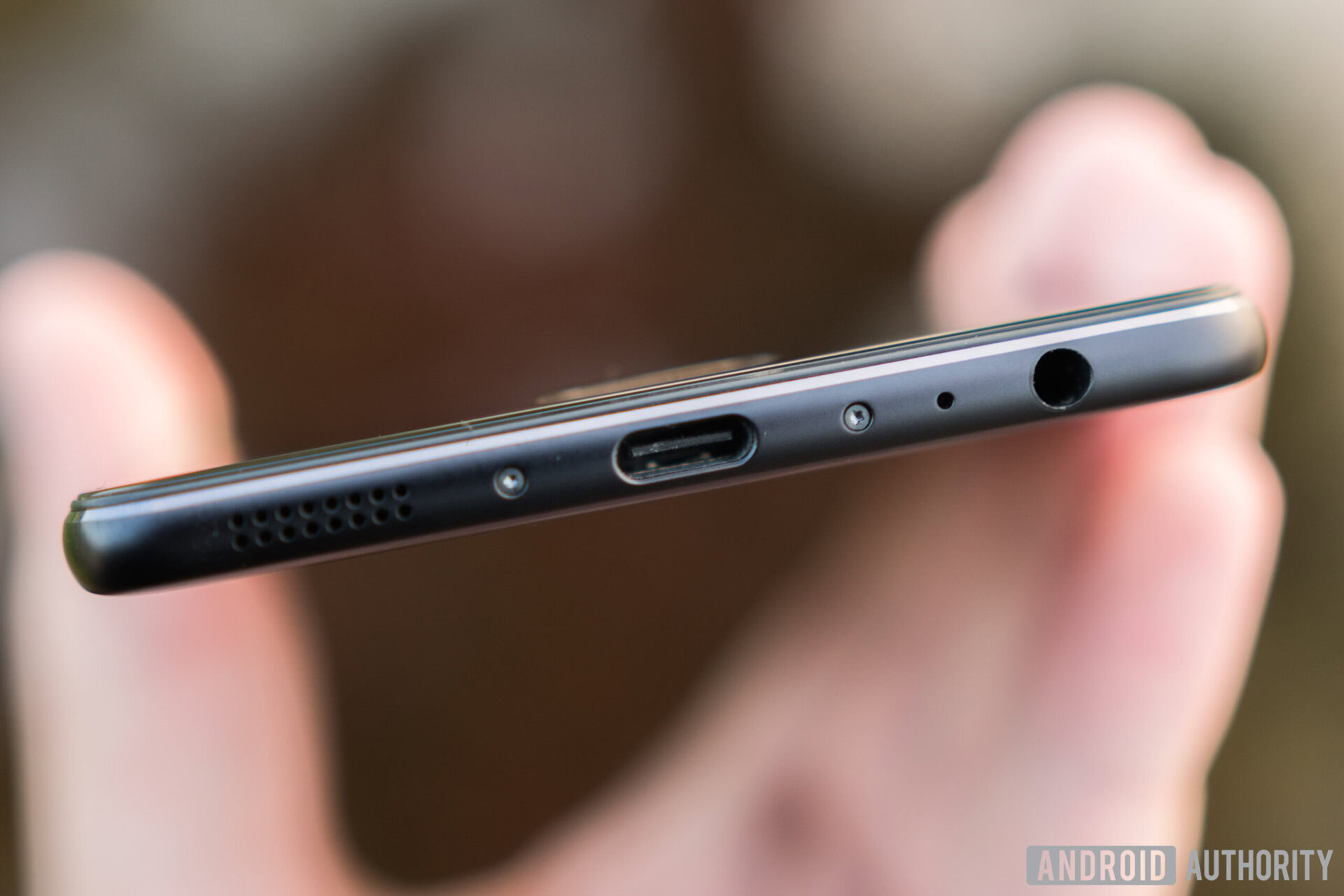
The bottom-firing internal speaker on the Pro 7 Plus is surprisingly very good and is a remarkable improvement from the Pro 6 Plus. It’s very loud with minimal distortion, which is not the case with the average smartphone these days.
There’s also 32-bit Hi-Fi audio through the 3.5mm headphone jack. It has a Cirrus Logic CS43130 DAC + AMP combo, which is the exact same chip that’s in the Galaxy S8. Audio output through the headphone jack is loud and clear, as we expected.
Battery life
Meizu has bumped the battery capacity from 3,400 mAh with the Pro 6 Plus to 3,500 mAh with the Pro 7 Plus. Overall, we experienced similar battery life. That’s good news as the Pro 6 Plus’ battery life was quite strong.
As you can see from the screenshots above, we averaged about five and a half hours of screen on time during twenty-four hour periods with moderate usage. Since our battery life tests were conducted while connected to HSPA+ instead of 4G LTE, however, we suspect that our results may be slightly inflated. We also note the higher standby usage this time around, perhaps due to the Helio X30.
We estimate that you’ll be able to comfortably get a full day of use with four and a half hours of screen on time with the Meizu Pro 7 Plus’ battery. With lighter usage, you could very well get one and a half days of use with this phone.
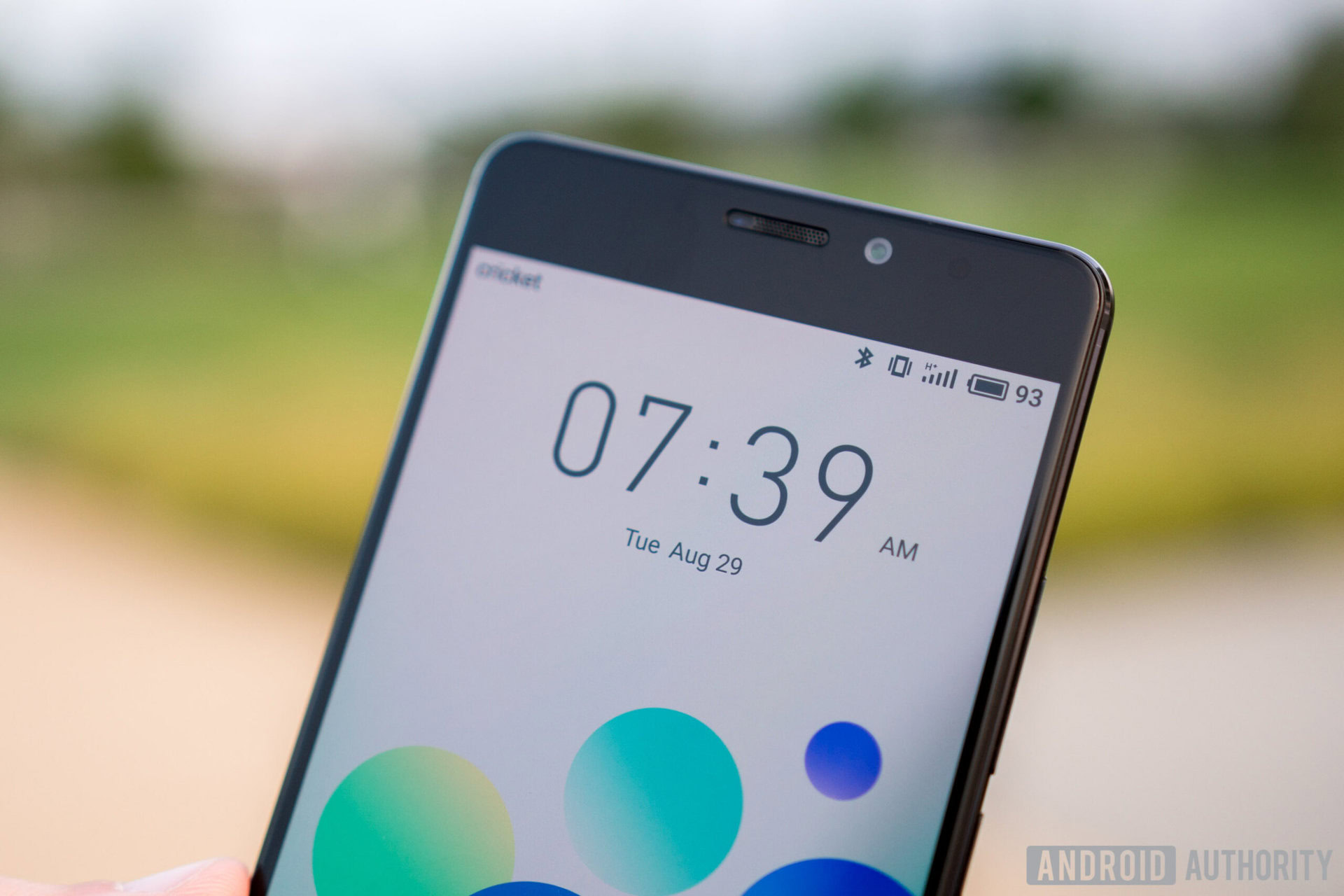
We were able to get a 65-percent charge in just thirty minutes
When you need to top off the Pro 7 Plus’ battery, you can do so with mCharge 4.0 fast charging. We were able to get a 65-percent charge in just thirty minutes, which is extremely quick. It’s even 12-percent quicker than Dash Charge on the OnePlus 5, based on capacity.
Camera
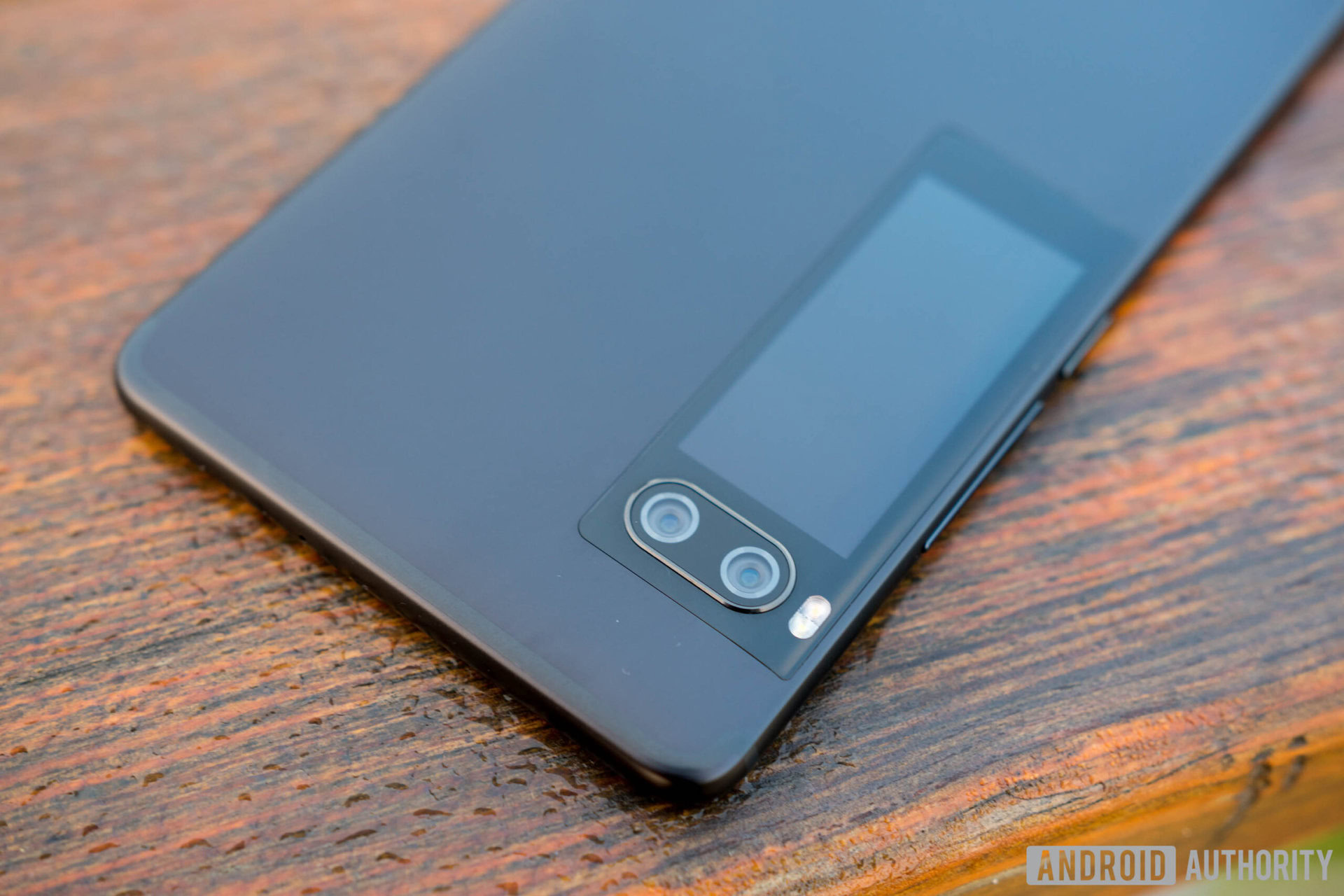
The Meizu Pro 7 Plus features the same Sony IMX386 12 MP f/2.0 rear camera as its predecessor. However, there have been some changes; there’s no more laser autofocus, the 10-LED ring flash has been replaced by two LEDs, and the camera is no longer optically stabilized.
Another Sony IMX386 12 MP f/2.0 camera has been added though, making this a dual-camera setup. The secondary camera captures monochrome images which supposedly helps produce higher quality images. We would have preferred that the secondary camera instead be a wide angle or telephoto lens, but this setup shouldn’t be brushed off.
Overall performance is about what we would expect at this price
Images look pretty similar to those taken by the Pro 6 Plus. Color reproduction is excellent, there’s a good level of contrast, and images are quite detailed. Overall performance is about what we would expect at this price. Unfortunately, the lack of optical image stabilization translated to some blurry shots when we didn’t have a perfectly steady hand.
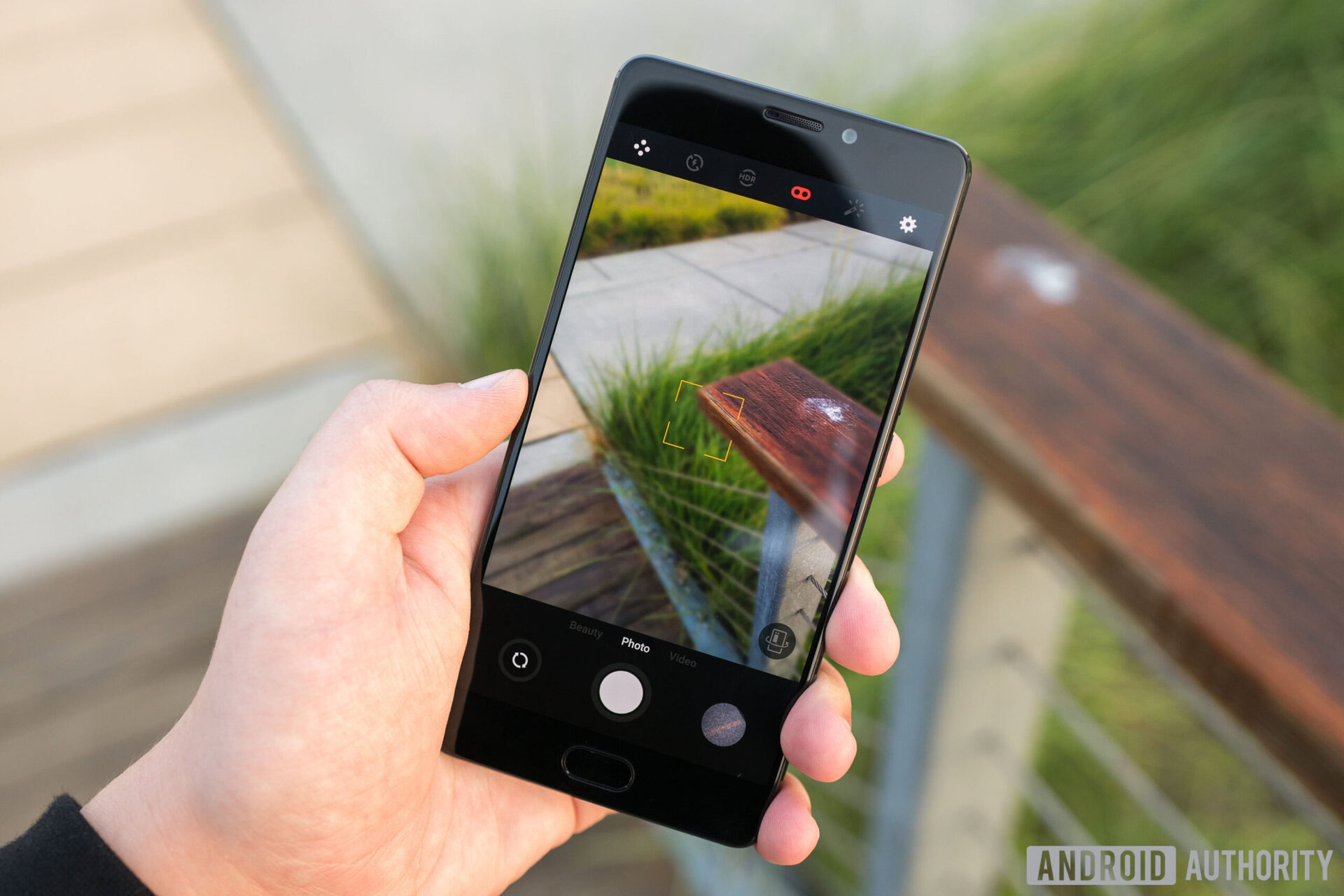
Thanks in part to its dual lenses, the Pro 7 Plus also offers a dual lens blur mode. This mode works by isolating the subject from the background and then by applying an artificial background blur. Chances are that you have already seen something similar to this on other smartphones. Basically, the added bokeh is supposed to make images look more professional, like those shot from a DSLR.
The dual lens blur mode is pretty hit or miss
We tested the feature in a number of different situations and found that it’s pretty hit or miss. Sometimes it works almost perfectly with accurate edges on the subject and a gradual blur. Other times, however, the edges are inaccurate and the blur is too sudden.
This is Meizu’s first implementation of this feature, so we will cut them some slack. We are certain that the feature can be improved with future software updates.
As expected, low-light camera samples didn’t come out as impressive at daytime shots. Colors aren’t as punchy, there’s a loss of detail, and there’s a fair bit of digital noise in most of our sample images. We would still say it performs about average for an affordable smartphone.
Although you can take selfies using the rear facing cameras thanks to the secondary display, there’s still a 16 MP f/2.0 front-facing camera. Selfies taken with the front-facing camera came out quite well.
You can record videos at up to 1080P at 30fps with the front camera and at up to 4K at 30fps with the rear camera. Videos recorded with the rear camera come out very nicely. Colors look pretty good and there’s a good amount of detail. Check out our video review at the top of this page to see a short sample clip.
Meizu has stuck with the new HEVC codec for video files. This codec retains video quality while offering smaller, more compressed files. The only drawback is that the files can be difficult to play on some devices. Don’t worry though, as you can easily convert the files if you have trouble.
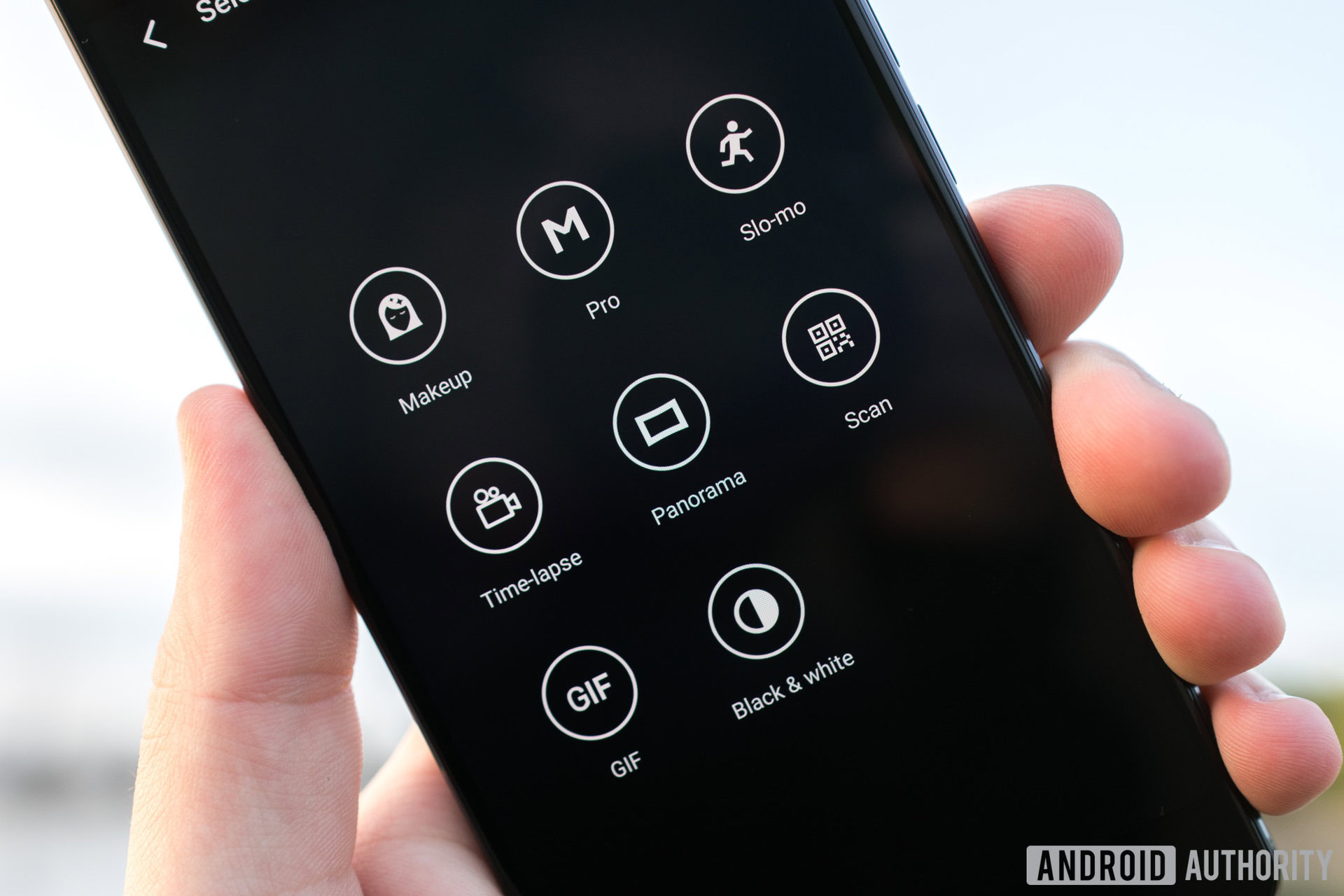
The system camera app will feel very familiar if you’ve used a Meizu device in the past. Regardless, it offers an easy-to-use, intuitive shooting experience. There are multiple modes as well as some filters that you can play around with.
You can quickly access the camera with a double press of the home button. You can do this anytime the phone is on. So, even if it is locked, you can just double press the home button to quickly launch the camera. We really like this implementation.
Software
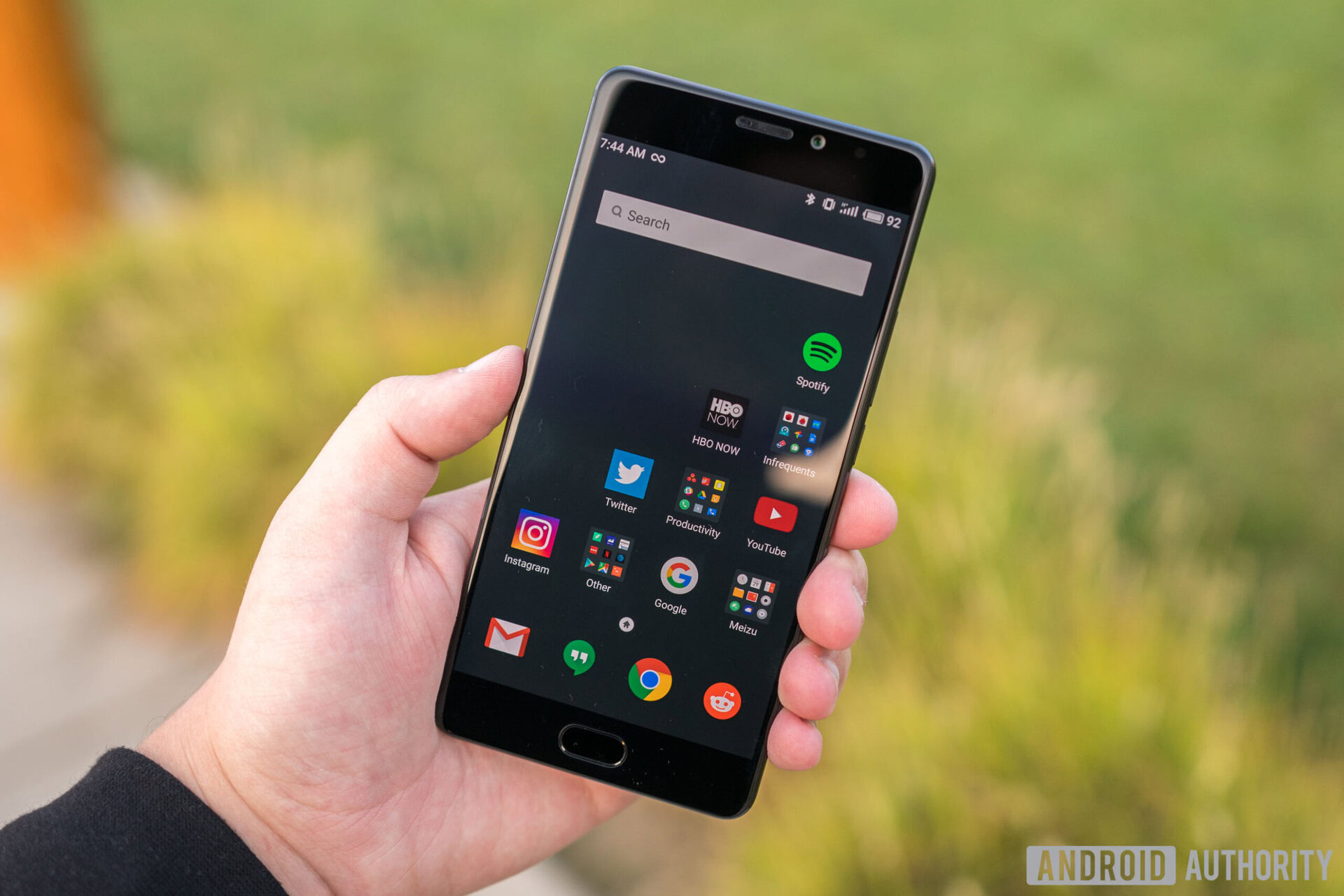
The Meizu Pro 7 Plus runs Android 7.1.1 Nougat, but the software is quite different from stock Android. Meizu has layered on its Flyme 6 skin, which we applauded in our Pro 6 Plus review. It’s not for everyone, but it’s great for those looking for something different.
Flyme 6 isn't for everyone, but it's great for those looking for something different
We maintain our assertion that Flyme 6 is one of the most well designed Android skins to date. Flyme’s polished user experience truly adds value to the Pro 7 Plus. You will love the clean design, fun animations, and extra features that come bundled with the Pro 7 Plus’ software.
The user interface design is especially remarkable. You’ll find that it’s colorful, bold, and responsive, which translates into an intuitive user experience. The design language is very consistent throughout the software, from the menus to the system apps.
We also appreciate the extra security features that Meizu has added on top of stock Android. The secure payment mode and Wi-Fi network security scanning, for example, help users stay protected against potential attacks.
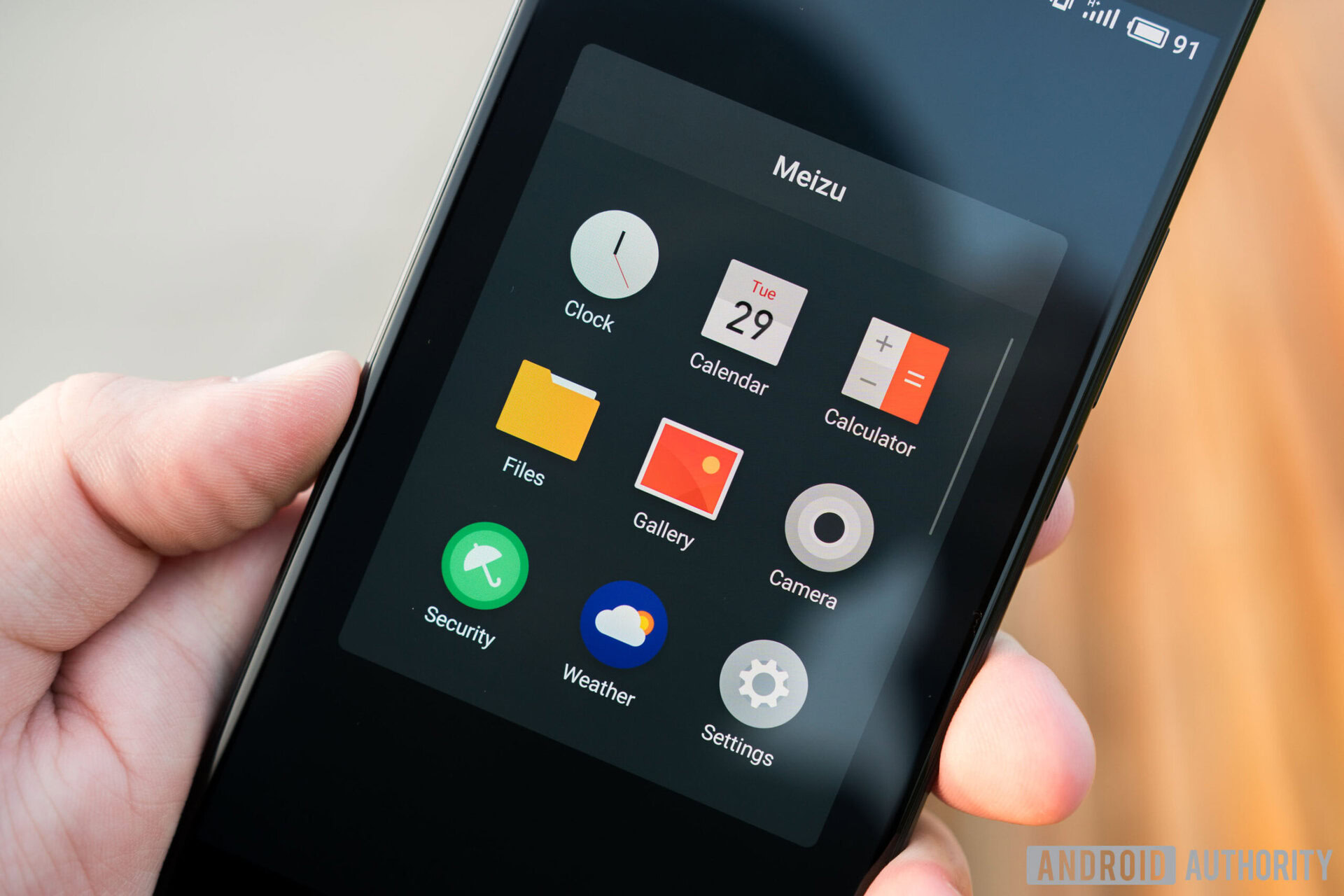
It is slightly unlikely that Meizu will bring Android 8.0 Oreo to the global Pro 7 Plus
Just one more thing to keep in mind — Meizu’s system updates focus on changes to Flyme more so than Android versions. While it is slightly unlikely that Meizu will bring Android 8.0 Oreo to the global Pro 7 Plus, you should know that most new Android features are implemented into Flyme anyway. Still, we understand that this lack of software support might be a turn off for some.
Specifications
| Meizu Pro 7 Plus | Meizu Pro 7 Plus | |
|---|---|---|
Primary Display | Meizu Pro 7 Plus 5.2-inch Super AMOLED display 1080 x 1920 resolution 423 ppi | Meizu Pro 7 Plus 5.7-inch Super AMOLED display 1440 x 2560 resolution 518 ppi |
Secondary Display | Meizu Pro 7 Plus 1.9-inch AMOLED display 240 × 536 resolution 307 PPI | Meizu Pro 7 Plus 1.9-inch AMOLED display 240 × 536 resolution 307 PPI |
Processor | Meizu Pro 7 Plus Meditatek Helio P25 Octa-core processor up to 1.6GHz | Meizu Pro 7 Plus Meditatek Helio X30 Deca-core processor up to 2.6GHz 10nm manufacturing process |
GPU | Meizu Pro 7 Plus ARM Mali-T880 | Meizu Pro 7 Plus IMG PowerVR 7XTP |
RAM | Meizu Pro 7 Plus 4 GB LPDDR4X | Meizu Pro 7 Plus 6 GB LPDDR4X |
Storage | Meizu Pro 7 Plus 64 GB | Meizu Pro 7 Plus 64 GB (UFS 2.1) 128 GB (UFS 2.1) |
Cameras | Meizu Pro 7 Plus Rear: (x2) Sony IMX386, 12 MP, f/2.0 Front: 16 MP f/2.0 | Meizu Pro 7 Plus Rear: (x2) Sony IMX386, 12 MP, f/2.0 Front: 16 MP f/2.0 |
Battery | Meizu Pro 7 Plus 3,000 mAh Non-removable | Meizu Pro 7 Plus 3,500 mAh Non-removable |
Ports | Meizu Pro 7 Plus USB Type-C (USB 3.1) 3.5 mm headphone jack | Meizu Pro 7 Plus USB Type-C (USB 3.1) 3.5 mm headphone jack |
Water resistance | Meizu Pro 7 Plus No | Meizu Pro 7 Plus No |
Connectivity | Meizu Pro 7 Plus Wi-Fi 802.11 b/g/n dual band Bluetooth 4.2, LE | Meizu Pro 7 Plus Wi-Fi 802.11 b/g/n/ac dual band Bluetooth 4.2, LE |
Software | Meizu Pro 7 Plus Android 7.1.1 Nougat Flyme 6 | Meizu Pro 7 Plus Android 7.1.1 Nougat Flyme 6 |
Dimensions and weight | Meizu Pro 7 Plus 147.6 x 70.7 x 7.3 mm 163g | Meizu Pro 7 Plus 157.3 x 77.2 x 7.3 mm 170 g |
Gallery
Price
The global version of the Meizu Pro 7 Plus will be available soon in matte black, space black, silver, and gold for around $530. The global Pro 7 will also be available soon in matte black, gold, and red for around $430.
Meizu is planning an official release in 17 different markets. We do not recommend importing this device from China though as you cannot use global firmware on non-global units.
Conclusion
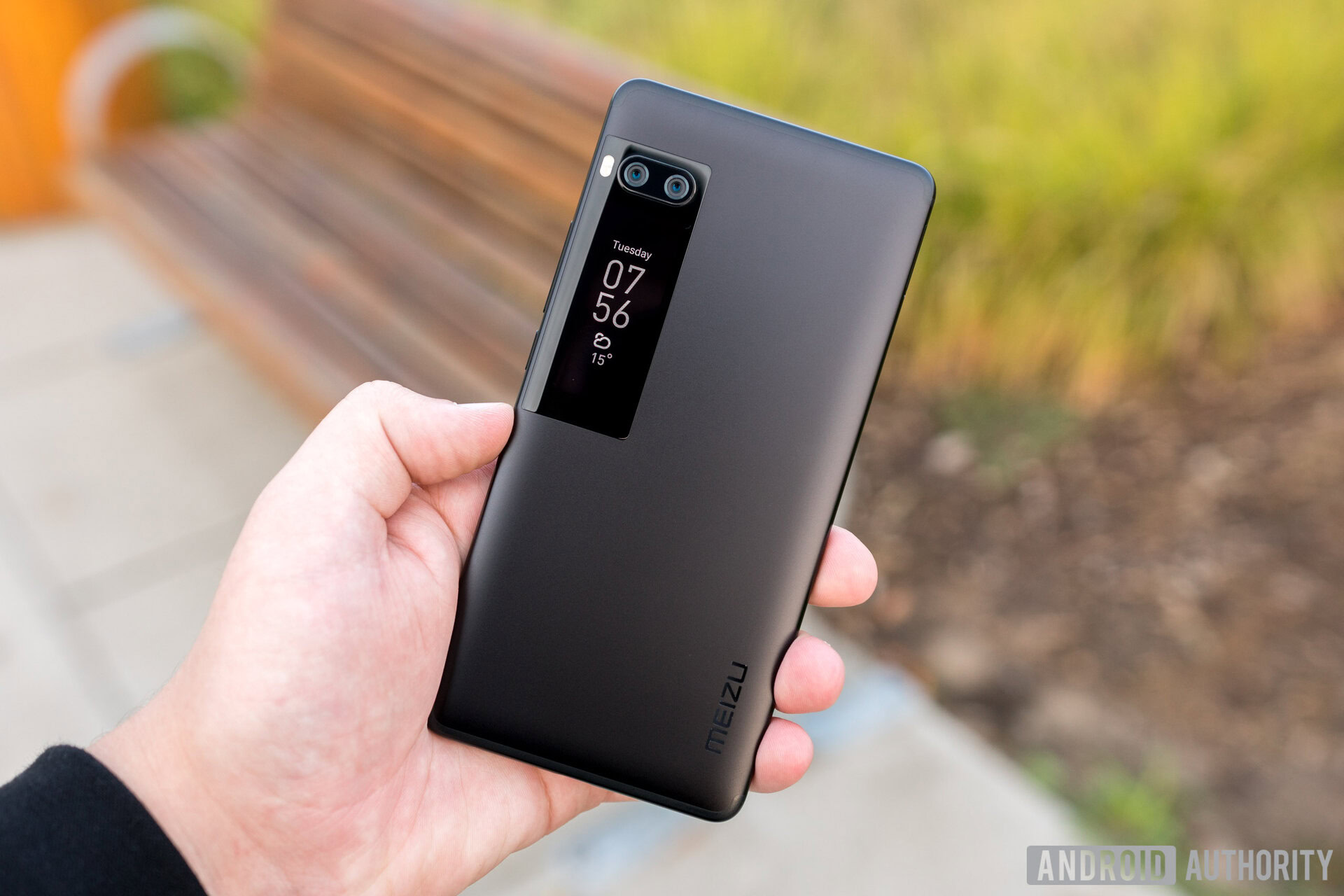
The Pro 7 Plus is one of the most unique smartphones that we have reviewed this year. With it, Meizu has not only delivered a fresh software experience on top of a great overall package, but has also implemented a very cool looking secondary display.
The secondary display helps the Pro 7 Plus truly stand out...
The secondary display helps the Pro 7 Plus truly stand out from the countless other smartphones out there. It substantially adds to the phone’s aesthetic while also serving as an excellent conversation starter.
But don’t buy this phone just for the secondary display. While the screen can definitely be useful at times, it’s still very much a first generation concept. It’s chic, yes, but you should think of it as a bonus item rather than a sole reason for a purchase.
...but you should think of it as a bonus item rather than a sole reason for a purchase
That’s not to say that the Meizu Pro 7 Plus isn’t worth the money. Its well-designed software and excellent hardware make it a very serious competitor to the Xiaomi Mi 6 and the OnePlus 5 – if you live somewhere you can take full advantage of what it offers.
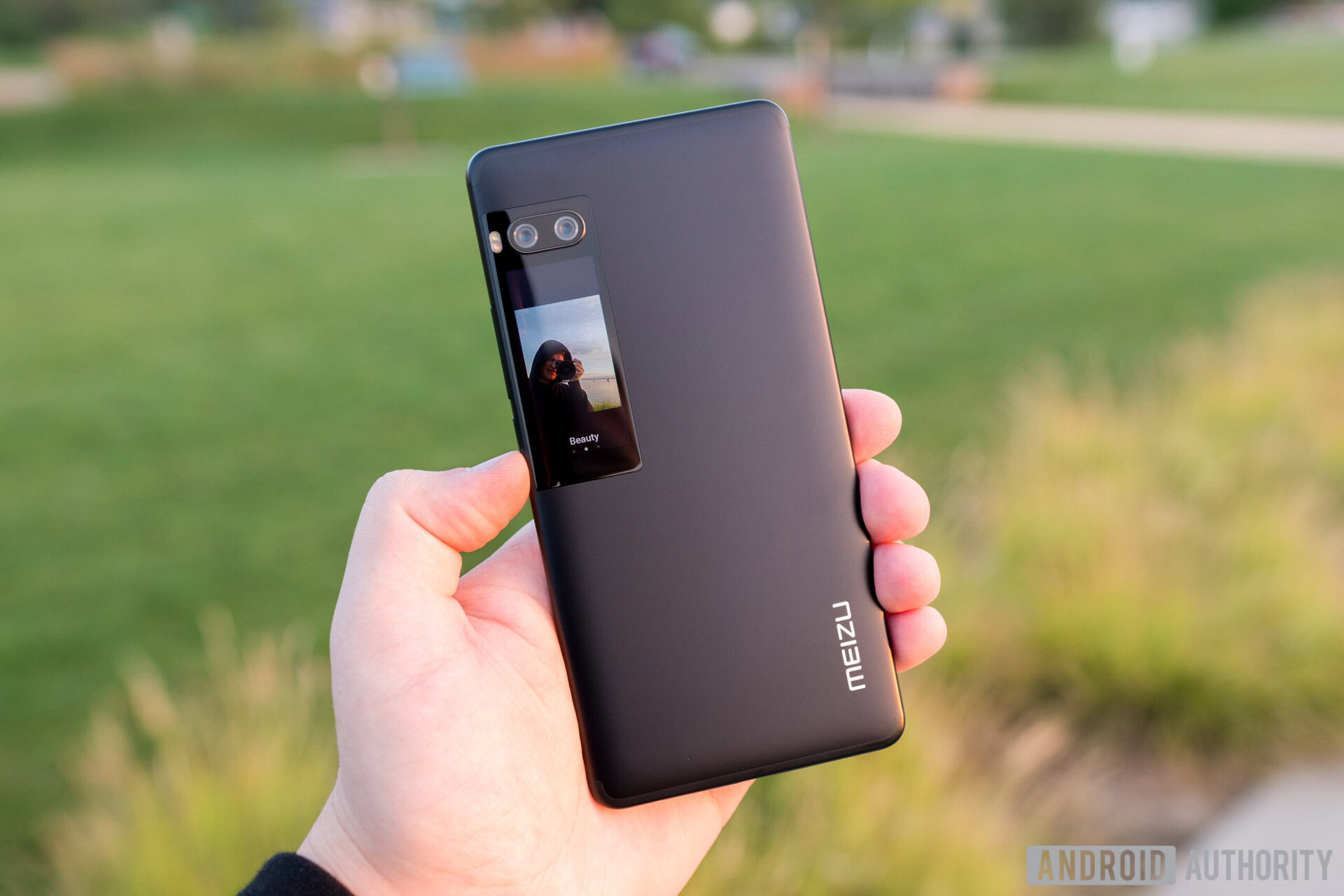
If you’re looking for something genuinely unique and can get past its quirks, the Meizu Pro 7 Plus is an excellent choice. We are confident that future software updates will only improve the secondary display and overall experience.
As always, please feel free to leave any questions or comments in the comment section below!